Safe Haven: A Romantic Comedy in Eleven Unequal Parts
by Brian Conlon
Part I: What Men Talk About
“Sometimes I think life is too difficult, and other times I think thinking life is too difficult is an awful thing to think,” James said to Horant.
“Would it make you feel any better if I were to tell you that currently, as we speak, you are living on a day and time that is easier to live on than 99% of all other days and times humans have lived on, and that you live in a country that is easier to live in than 99% of countries on Earth, and that you live in a city that is easier to live in than 99% of cities in this country, and that you, you personally, have it easier than 99% of people living in this city at this time. And none of these numbers include the people who are already dead and presumably have it much tougher than the rest of us. Would that make you feel better?” asked Horant.
“No, that makes me feel worse. Much, much worse.”
“Then maybe I ought not tell you all that then.”
“It’s too late now, I should think.”
“I could tell you I made it all up.”
“You could. Did you?”
“Yes, of course. Where would those statistics even come from? Think.”
“Well, that makes me feel much better.”
“Terrific.”
“Do you feel better now?”
“Better than what?”
“Than before we started talking?”
“No, I feel the same. I felt best in that moment in which you believed all that nonsense about you being happier than everyone else.”
“And worse since?”
“I could not feel best then, if I didn’t feel worse now.”
“I’m sorry to hear that.”
“Don’t be. None of us can feel best all the time, no matter the era.”
“I suppose you’re right.”
“Why? Why would you suppose that?”
“No, I guess you’re probably wrong. Someone must have felt best all the time in some era.”
“Why?”
“Math.”
“This is now the time I feel best.”
***
James had a theory that every living sentient thing had the same last thought, namely, “But I just got here.” This theory could, as with everything important about death, be in no way tested. But there is something to be said for a unifying theory of sentient beings, no matter how untestable.
His theory, which some might think to be a call to action, had a paralyzing effect on him. It caused him to stop and reconsider, to overthink whether this or that action was really worth the precious time he had remaining (fifty to sixty years give or take), and by the time he finally decided to act or not act, often times the decision was already made for him.
“Crippling depression is a phrase tossed around far more often than it should be,” James told Horant, describing some of his deeper moments of self-doubt. “It somehow marginalizes both what it means to be crippled and what it means to be depressed.”
“Uh-hah,” said Horant staring at the flat screen TV in front of him. The Network had an attractive blonde anchor in one corner of the screen and the following displayed in some fashion over the rest of it: a ticker of the stock market; the latest baseball scores; an hours, minutes, and seconds countdown to Christmas Day; the “shape of the day” flashing in the bottom left corner (pyramid); an animated kitten pawing at an on/off button in the other corner; and a sack of potatoes, only half-filled, meant to measure the extent of the latest famine in Africa. None of this was particularly distracting except for the attractive blonde. She winked at Horant it seemed. “Understandable,” thought Horant, who was of the belief that his Nordic heritage entitled him to some indiscernible and unidentifiable power over the opposite sex. “I have blue eyes, blonde hair, I’m tall, lean, not especially ugly, how can they resist?” His suspicions were sometimes verified, sometimes not, but it was all he really believed in, and so to stop believing it just because it may not be true was not an option.
“Not that it means all that much to be crippled or depressed; it’s just another way of saying, ‘something is wrong with me.’ No, no, I know that’s insensitive, but that’s what it is, is it not that?” James asked.
“It’s that, but more than that. It says there is something in particular wrong with you or at least that there is some way in which you are abnormal.”
“Well, yes, but this is not really the point. What I want to say is that I’m not depressed or crippled or crippled with depression, I just think sometimes, and that can get out of hand, you know?”
“I think I know what you mean when you say those words, but I can’t sympathize with what I take them to mean,” said Horant, vacantly staring at the TV.
James hung out with Horant only, or at least initially only, because he took him to be a type of genius. James may have mistaken Horant’s particular way of appearing overtly analytical and diffident with genius. This mistake, whether real or imagined, led to what some might call a friendship.
“Maybe so, maybe so,” said James and then thought about what Horant had just said without speaking for the next minute or two, occasionally glancing up at the totally blank screen behind Horant. The TV was broken, had been for several months, but the owner of Go Ahead and Order That Diner, Janet Hoops, did not want to fork over the money to fix it at the moment, her cat being on its ninth life and fading fast. The money she had poured into that poor cat’s hips alone could have paid for several new TVs and the 3-D goggles one might have to wear to view them.
James gave up on figuring out what Horant meant and continued talking, “The moment when you concede that the moment has already passed, that’s the moment I’m interested in thinking about. But once I start thinking about it, it’s gone and that hurts somehow more than the fact that there was such a moment in the first place and I spent it thinking about whether the previous moment was real, well-spent, correctable, or the greatest moment of my life. One moment will have to be the greatest of my life. It’s simple logic, and it might have already occurred, and I might have missed it, and I might never know when it was, or why it was so great until some professor a thousand years from now figures out a way to use analytics to measure each moment of our existence and calculate by some way or another which particular one was the greatest in terms of happiness-expectancy or some analogous important criteria. This is what bothers me sometimes, Horant.”
“I perceive that what you just said means a great deal to you, but I have no idea why that would be.”
Part II: How People Meet
Horant had devised a double date. The blonde woman from the TV had been sending him emails. At first, neither he nor his spam filter could really believe it. They each thought, independently, that The Network had devised a clever way to advertise by sending automated messages to their viewers couched in familiar language and purportedly authored by Haven Hootenanny, The Network’s most popular female anchor. She was likely The Network’s most popular anchor of any gender, but former football star Cleat Tersestatement still had his champions, even if he himself had failed to win any championships. The Network announcer always referred to Cleat as “well-loved” before announcing his name, as if Cleat were the nation’s brutish but well-meaning cousin. The Network had toyed with the idea of having Cleat and Haven host a show together, but The Coordinator wrung his hands and asked those who suggested it, “If you had two eggs, among a bunch of black rocks that no one could ever conceive of as eggs, would you place them beside each other?” No one at the meeting knew what to say, but guessed that this meant that The Coordinator was not on board, and that settled that.
Haven had seen Horant. She had seen him on the distracting scroll of viewers set up next to the teleprompter during her broadcasts. The Coordinator had come up with the idea, which cost The Network millions of dollars in incredibly invasive technology to execute. While you were watching The Network, The Network was watching you, or, rather, The Network anchors were watching a still image of you. The point was something like, “know your audience,” or “advertisers like pictures,” or, “look how ugly everyone else is, doesn’t that make you feel better, on-air talent!” The Coordinator was pleased with how ugly everyone indeed turned out to be. Haven was less so.
Prior to the inception of the Instant Viewer Viewer (IVV), Haven had imagined that she was broadcasting to the elite of America, 90% of whom, she suspected, were beautiful people she did not get to see in her everyday routine because they were too rich and beautiful to leave their respective mansions, but neither too rich nor too beautiful to get their news directly from her. Her first show with the IVV opened her eyes to how ugly people truly were. She swooned on air and The Network was forced to cut away to footage of cats and dogs sleeping next to each other. Ratings were unaffected. Haven was affected. It took her weeks to come to grips with the true nature of her viewers. She cried herself to sleep at the images of their crooked teeth, their lazy eyes, their ill-defined chins and cheeks, their baldness, their broken noses, their splotchy acne, their neon make-up, their increasingly stupid mouths. They scarred her; they made her reconsider her livelihood, her religion, her species. She thanked God every night that the IVV only showed faces. She vowed that if ever she saw a face she thought objectively attractive, she would reach out to that person, personally, and thank them, at least thank them.
Her first email read:
Dear Horant,
I am Haven Hootenanny, an anchor for The Network :). I want to personally thank you for watching my show. Without viewers like you, it would all be less than worthwhile ;). I might be driving off a cliff instead of writing this email even :)! Can you imagine? Just driving my giant SUV off a cliff? Best in class safety rating and all, just right off a cliff :). Gravity doesn’t care about safety ratings. We did a show on that, remember? You watched it ;’-). Thanks!! We really like you here at The Network. Really like you!! Please keep watching ;)!!
-Haven
Horant thought this was a pretty wacky automated email and searched the internet high and low for anyone who had experienced the same. He found nothing and alerted his email account to send any further messages from hhootenanny@thenetwork.com to his main folder. He did not, however, respond, because if it was really her, a response to her initial email would basically ruin the vibe, and if it wasn’t her, a response would just be embarrassing.
Her second email read:
Dearest Horant,
You’re still watching! Thanks so much! You’re still watching! Thanks so much! You’re still watching! Thanks so much! :):):)
We have a rule of threes here at The Network. If something works, do it three times at least! We’re so happy you continue to watch. Look, I’m happy you watch! I can’t stop thinking about your face. It’s not bad, really ;). Your nose could be cuter. Don’t get me wrong, your nose could certainly be cuter.
If we spoke on the phone, I have the sense you would speak in clipped abstract sentences. I can’t imagine what you would mean by them :)! Would you mean something by them, Horant ;)? Please say you would. Would you? Don’t say. I can’t bear it. I still have the cliff in my GPS! LOL! Don’t worry, I’m all talk, until I’m not! 😉
Keep watching Horant! Please keep watching!
-Haven
Horant responded:
Dear Haven,
I’ll keep watching.
-Horant
Haven did not respond for weeks, but her spirits were lifted every time Horant’s face would appear on the IVV. She had a bottle of wine one night and wrote her third email.
Horant, Dear,
This is the third email, you know what that means ;)! I am being compliant with The Network’s policy! Aren’t you glad for my compliance! You still watch at least! You still watch! And you write lovely emails, my dear, Horant, just lovely. You might be a poet. You might be an astronaut. There’d be no way for me to know.
Let’s meet! No, wait, I mean, keep watching please :). Just keep watching. One day I may stop being on The Network. Can you imagine such a day? We simply won’t see each other that day. All other days will curl up beside that day and console it for its great loss ‘;). Tomorrow is not that day, nor the next day. I have a contract :)! I have a lawyer ;)! The memory on my GPS is finite. I forget where the cliff is. Each time I see you the cliff fades further and further into obscurity.
Thanks for that! Thanks for your face! Your nose, meh, but thanks anyway ;).
Lovely thoughts of impossible versions of me,
Haven
Horant did not respond immediately, although he planned to. Instead, he saw Haven in real life at Carzone’s Frozen Goods, a store which sold, as you might imagine, frozen things, and was kept, as you might not imagine, entirely at a crisp 20 degrees Fahrenheit year round. On especially hot summer days it was particularly crowded with idlers who would spend half an hour sorting through the pea section, which really only contained three items, all of which were the same brand of peas in various sizes. Some not insignificant number of idlers became temporarily ill and sued Carzone, as the complaint read, “for the cost of all that Mucinex.” Carzone’s attorney arranged a meeting between the parties in a park on a scorching August afternoon. The plaintiffs ended up settling for the opportunity to step back inside Carzone’s Frozen Goods and a $1-off-any-non-cone-ice-cream-novelties-12-pack coupon.
It was a warm summer day when Horant observed Haven holding a bag of frozen blueberries to her face.
“Haven?” he asked.
“Does make-up freeze? If so, at what temperature?” she turned and asked a clerk who was trying to stack frozen corn cobs with mittens on.
“We have some frozen make-up Miss. We have some, so it must,” he fumbled with the corn, which was luckily wrapped in plastic. The corn rolled across the floor past Haven, who simply nodded and placed her blueberries back in the pile.
“Haven?” Horant almost shouted as he picked up the loose corn cob and handed it to the clerk.
“Oh, of course I’ll sign. Do you have a pen? Mine might freeze and it’s very important it not, so I keep it capped. You see we anchors have real problems too,” said Haven without looking up.
“Is the cap thermal?” asked Horant.
“What are you saying? I don’t understand what you’re saying. Please, just get a pen.”
By this time the clerk had snatched the corn cob out of Horant’s hand and proceeded to attempt to add it to the already perilous heap. It, of course, all collapsed, and the rolling cobs swept the clerk off his feet and onto the glazed floor, and would have done the same for Haven had Horant not stepped in and stabilized her by grabbing her right arm.
Haven finally looked up and saw that face. It was the face which she had not been disgusted by all these past few months, the face which she sometimes credited for calming her nightmares and other times thought would be much better if someone simply replaced part of its nose. She nearly swooned, but it was too cold to swoon, so she shook.
“Horant? My dear sweet Horant,” she said.
“Yes, or, yes, that’s me,” he said, holding onto her arm even though she was now in no danger of slipping.
“Let go of my arm so I can hug you,” she said smiling, her teeth still chattering a bit. She held onto him tightly just for an instant and then let go.
“Well, what now?” he asked.
“Up to you really. Will you keep watching?”
“You mean on TV?”
“Yes, of course, will you keep watching now that you’ve seen me in all my frozen-blueberry glory? Will you?”
“I don’t see why I wouldn’t.”
“I don’t either, but you might not. I don’t understand viewers, or men, or plasma. I don’t know what plasma is. It’s like liquid, but not, right? That’s the sense I get.”
“I think you’re not far off. We should get out of here and discuss it, perhaps over a liquid.”
“It’s too cold after a while. God love Carzone, I don’t know how he does it. We ran a report once on him. You should have seen the coats. Closets and closets full. Full closets full.”
They walked out onto the street, both forgetting to purchase anything.
“I have an idea,” said Haven. “There’s this woman who works at The Network, she brings the bagels in some days. I’m not sure what she does the days we don’t have bagels, but I can ask. Anyway, she’s real sweet and lonely. Just bowls of sweet and lonely I think. Men think she’s alright, she’s shy, but men think she’s alright, I can tell that at least about men. I know when they think one of us is alright. Like you think I’m alright, don’t you?”
“I do think that, yes.”
“So this woman, she, we could double-date, her and I. She seems perfectly compatible for someone I’m sure. Someone who doesn’t really watch me probably, someone who thinks TV is somehow worse than alcohol. You know what I mean?”
“I don’t understand precisely the combination of words you are saying, but the sentiment is clear enough. I have a friend. He should be perfect. He thinks too much and rarely to his benefit.”
“Right, that’s what I mean. Horant, really, we, the two of us, really!”
“Really!” said Horant, not quite sure himself whether he meant this as a sarcastic pantomime or an enthusiastic affirmation of their newfound admiration.
Part III: How People Who Meet Convince Other People to Meet
“We have a date,” said Haven.
“Are you talking to me?” asked the girl who brought the bagels. Her name was Florence Gutner, her college friends called her FloGut for one particularly strong and uncharacteristic impromptu freestyle rap she made after shotgunning a beer freshman year. She had not rapped or shotgunned since and no one at The Network called her FloGut. She actually had no gut to speak of. She wore glasses and usually tied her dark hair back in a tight bun. She had sensitive brown eyes and had once thought they might be her downfall. She had since come up with other things about herself to dislike more than the fact that her eyes would not allow her to wear contacts. For instance, she thought her eyebrows were too thick, but was afraid that waxing them would make her a superficial person. She was also not thrilled with the fact that after having graduated near the top of her class at the best university in the region, the only job she could find in the entertainment industry was Assistant Food Assistant for The Network. She had ideas, she had a sense of humor, but she thought she had no way to export them, and, accordingly, spoke very little at The Network.
“Yes, yes, of course I am, of course I am,” said Haven.
“Okay,” said Florence.
“So it’s settled then. I’m sorry, are you seeing anyone?”
“What? Ms. Hootenanny I’m very flattered, really. But I just don’t, I mean,” said Florence, who was in fact not seeing anyone and had not really seen anyone since her junior year. The one she saw at that time was Hector Uden, an aspiring paleontologist with a round face and short arms. There was a running, not terribly kind, joke in the department that Hector chose his major somehow based exclusively on his sympathy for like-armed creatures. Hector once confided in Florence that this joke really bothered him, mostly because he was not completely certain it was untrue. To console him, she wrapped her arms around him and he was almost able to wrap his arms around her. Haven’s question brought all this and more to the fore of Florence’s mind as she rubbed her eyebrows, and then stretched her arms high above her head.
“No, we will go on a double date. You and I, with two men. One is Horant. He will be my date, and the other will be someone he knows.”
“I’m sorry. Was there something wrong with the bagels?” asked Florence, moving her arms back down.
“No, look I know how it is. I’m single too you know. It’s tough out there. There’s so many . . . but this Horant, he’s alright and I’m sure his friend . . . don’t you want to get out and meet people, ah . . .”
“Florence, I’m Florence.”
“Yeah, Florence, you and I we, this could be good for both of us really. I thought of you specifically. You’re always looking so nice, the bagels are always here as expected. I mean we girls we have to look out for each other you know. It’s tough,” said Haven.
“Well, I suppose . . . and you don’t know the other guy? What does Horant do?”
“He watches The Network at least. I guess I don’t really know. But his friend, he doesn’t watch much I don’t think. He said he thinks sometimes.”
“Well that’s a start.”
“I mean, I have to . . . Why am I selling you on this? I’m on-air talent, you deliver bagels. Say yes in the next ten seconds or don’t. I mean it’ll be fun anyway. Worst case the guy is a troll and you get a nice dinner out of it. I mean worst case he’s a troll, absolute worst case.”
“Sure, alright,” said Florence, grabbing a pencil out of her hair. “What are the details?”
“I don’t know. No one does, but someone will tell you. Maybe me,” she handed Florence her card and walked away from the snack table.
Florence thought to herself that this was something at least. After a number of days of nothing, this was at least something.
***
“We have a date,” said Horant to James as he entered Go Ahead and Order That Diner.
“Are you talking to me?” asked James.
“Yes of course. Who else in here would I have a date with?”
“This is getting, you know Horant, I think the world of you, but to just announce. . . .” He paused and then said, “Presumptuous for one thing.”
“I don’t even understand what you think I could be talking about,” said Horant. The waitress approached and asked if James and Horant wouldn’t mind tasting the apple pudding the chef just threw together. “It’s an experiment,” she said. Horant and James looked at each other simultaneously and shrugged their shoulders. This was not quite as unusual as it might seem, as Horant and James frequented Go Ahead and Order That Diner and were often asked to taste-test the chef’s new concoctions.
They had never met the chef. Horant asked to once after an inspired rum-soaked cherry cobbler, but was told that the chef could receive compliments indirectly. “He prefers it that way in fact,” said their waitress at the time, who had since left for another waitress job closer to her mother’s house. In a subsequent job application, that waitress listed her reason for leaving Go Ahead and Order That Diner as, “womb proximity.” She did not get that job.
“Apple pudding, hmm,” said James, almost forgetting the date conversation.
“Truly, what did you think I meant just then?” asked Horant.
“When?”
“When I first walked in and told you about our date.”
“I, of course, knew you were joking. But it wasn’t funny. I haven’t found that type of joke funny . . . I can’t even remember.”
“No joke. I mean, we have a date. You and I,” said Horant.
“You paying?”
“Half.”
“That’s no date then. What kind of a girl do you think I am?”
“An entitled priss of a girl, with entirely too much chest hair.”
“Why I never!” said James, trying to gesture as he imagined a woman who wanted to feign outrage would. It came off somehow as a half jerk of his neck to the left. He grabbed at his neck after. He thought he pulled something.
“Enough, whatever, you idiot, I mean we have a double date. I met,” he pointed up at Haven on the flat screen they were facing at the counter. An animated penguin flew in over the top of her face and landed at the bottom of the screen. It proceeded to shiver and put on layer after layer of winter clothes, until its beak was all that was visible. Then another penguin swooped in just to the left of the first penguin and began undressing it methodically, layer after layer. Haven read, “After this cold snap, it’s supposed to warm back up.” When all the layers were removed, it was revealed that the first penguin was now a toucan and the second penguin looked on in astonishment as it flew indiscriminately through the newscast until the next commercial break.
“A flying penguin?” asked James.
“No, her, Haven, the newswoman.”
James sat in silence looking at the screen and pondering what all this could possibly mean. Obviously, if the newswoman were one of the women on this double date, Horant must be claiming her for his own. On the other hand, why would Horant point her out to him unless he meant to set him up with her? There are many less lovely blonde women off-screen than on it, he thought suddenly, and wondered if she might look entirely different in person. Not that she’d have thinner hair and more defined crow’s feet, but that she’d actually be a stout brunette with crater-sized pock marks. Maybe she looked like that one friend of his mother who constantly called him charming when he was a kid. It unnerved him, the thought of dating the friend of his mother. What would people think? Was she even still alive? How do we lose touch with our childhood so easily?
“Yes, she is beautiful. It is not polite to stare, but go ahead if you want,” said Horant.
The waitress brought the pudding over and both men started to shovel it in.
“They can do almost anything with digital effects nowadays,” said James, his tongue wading through the pudding to make contact with the roof of his mouth to enunciate the words.
“This is not how you’re going to talk on our date, is it? All slober and ill-defined syllables, like a giant puffball,” said Horant, after he’d swallowed a big gulp of pudding himself.
“I’m unclear. I still don’t know what you’re getting at.”
“Do I have to spell it out for you? You and I are going out on a double date with Haven and her friend.”
“Oh, and so, so you and the newswoman, and me and her friend,” James managed to get out through his last spoonful of pudding.
“There we go. He’s catching on everyone, he’s catching on,” said Horant, as if to a whole bunch of people. Only James was listening.
“Okay, okay, so what’s she like?” asked James.
“She, well you can see, she’s blonde, even more so in-person somehow, and strange. She sent me these emails. I don’t know what to make of them.”
“The friend sent you emails too?”
“God, I don’t know anything about the friend, okay? Not a thing. Man, for someone who thinks so much, you certainly miss a whole lot. I’m talking about Haven.”
“I, well, you don’t know anything about my side of things?”
“No, I mean, I think she mentioned something about bagels. She brings bagels, I think and she’s introverted maybe.”
“A wealth of information,” said James. Two distinct images flooded his mind. One of a beautiful actress with long flowing hair tied up in a tight bun, only for the time-being, she bit pencils, she wore tight skirts, she paged through books; it was unclear whether she read them. The second was of a thick Eastern European woman stirring boiled bagels in a huge vat, her makeup running, her muscular arms straining to dip the strainer through the water and take the bagels out to dry, her long apron stained with sweat, cream cheese, and poppy seeds, her chest heaving, coughing, the flies circling around the tight bun her hair was perpetually tied into.
“Well, so, worst case, she’s an imp, and I’ll let you stare at Haven for as long as you want, absolute worst case.”
“Imp? I don’t even know what you mean by that, but okay fine, anything for Horant.” At that moment the two women he pictured in his mind merged together and smiled at him. He smiled back, but since they were simply in his mind, this smile was directed at the flat screen and at Haven in particular, who was just then directing her audience’s attention to a picture of a giant turkey leg and the headline, “Boundaries in Synthetic Food?”
“You’re smiling like a loon,” said Horant.
“A . . . right, no, they were all one, but I’ve made this decision rashly.”
“You won’t regret it and if you do I’ll pay for whatever it is you think you otherwise would have done that night.”
“When is it anyway? What are we doing?”
“No one knows, maybe I will,” said Horant.
Part IV: How Plans Are Made
“To stumble out onto the street, hand in hand,” is what Haven told Horant she wanted to do on their date.
“I can arrange that, but it would be clumsy with the four of us. Structure to get to that point is, you know, common,” said Horant, considering whether he should make eyes at the phone he was speaking into. He thought this would take too much work, for his phone was beside his head and his eyes generally faced front. He ended up not making any expression at all.
“I am not interested in what is common. I know what is common. We are uncommon, you and I,” said Haven, sitting on her bed, attempting to unstrap her high heels with one hand.
“I, well, okay, sure. But I can’t tell James, you know, we’re going to stumble out onto the street Friday night. You, me, Haven, and this other person. What’s her name?”
“I don’t know. She is uncommon too. She is,” said Haven.
“Sure.”
“Well, we must all eat from time to time,” said Haven, unstrapping the second shoe, placing both her legs on the bed, and stretching her feet in every possible direction.
“Now we’re getting somewhere. Alright dinner, let’s do that. People do that,” said Horant, struck all of a sudden by the fact that he was seeking to be conventional.
“We will eat on Friday, the four of us. I think that would be nice. But you must promise me that you and I, we will also stumble out onto the street together hand in hand,” said Haven.
“I do,” said Horant.
“Well, that’s nice. That’ll be nice. Yes, how nice that’s going to be,” said Haven.
Part V: How and Why People Get Ready
Florence sat in front of her mirror for a while. It was a couple hours before she was to meet Haven, and two other guys. She was not looking into it, but she had a superstition, or maybe an illogical suspicion, that sitting in front of a mirror somehow let her think about herself more clearly. She thought the following:
Was she the type of girl who went on blind double dates with a colleague, no, not colleague, superior, no, not that either, on-air personality, was she the type of person (let’s set gender aside), was she the type of person who went on blind double dates with an on-air personality in order to advance her career? Was this what she was doing? How could Haven advance her career? Was she the type of person who thought a person like Haven could advance her career? Was she the type of person to delude herself into thinking that she was going on a double date with an on-air personality to advance her career, when she was in fact going in order to meet her soulmate? Was she the type of person who believed in soulmates, and even if she did, was she the type of person to use “soulmate” to describe what it was she believed in? It was all too pretentious for a real person. She was, if nothing else, a real person, her mother always told her. Do real people associate with the Havens of the world? Was it wrong to think of Haven as somehow not real? Can beauty make a person unreal? Too real? Was she the type of woman (gender is necessary for this one) who finds another woman so beautiful that she could consider her to be fake? Is fake the same thing as not real? Why do men seem to like fake women so much? Why do men like women so much? Why would any man like her? Some have, but she still didn’t know why. She wanted to ask. They all said she was beautiful, smart, charming, her cheekbones, there was something about her cheekbones one guy said. What is one to do about one’s cheekbones? Say you have just the worst cheekbones, what is one to do? File them? Do they have a file for that? She looked into the mirror, they’re just fine, she should be thankful; a certain type of cheekbone could make one unlovable. Why? A beautiful murderer will always be loved, but a woman with wonky cheekbones is shit out of luck. This seems wrong. But this was not her fight after all, her cheekbones were to her advantage. She had a competitive cheekbone advantage and she was just going to throw it away, because she didn’t find that particular advantage just? A’s! All she got was A’s! Where had this advantage gotten her? The cheekbones at least, that’s . . . would she have gotten this date without them? And could he be her soulmate? And could it be her big break? Are there big breaks? Did she want one? What would she do with one? Of the people who get big breaks, what percentage have highly desirable cheekbones? 90%? 95%? Or her GPA converted into a percentage: 98.5%? It’s not fair. It’s not fair, after all, just generally, but tonight she had a double date with Haven, the unreal beauty, and two men, one of whom was meant exclusively for her, and he might be nice, he might be charming, he might be intelligent, he might be an ogre. Was she the type of woman to turn tail and run at the sight of a nice, charming, intelligent ogre? She was, yes. Should she wear heels? Is that sending the wrong message? Does she run well enough in heels to outrun an ogre? Is he tall? If not, will he feel diminished by her height in heels? If he is tall, will he feel oafish if she shows up in flats? Will he notice her shoes? Does she have shoes she’d like him to notice? Why do people care about shoes? Do men care about shoes? In the history of the world, how often has a man made a decision on a date based on his date’s shoes? Seven? She could tie a couple of eggplants to her feet and wobble over and if her cheekbones were high enough, if certain parts of her were sufficiently round and others were sufficiently not round, he’d stand beside her and keep her balanced all night. He’d compliment her on her bold choice. “Is that a new core exercise,” he might say, “it’s really working!” And then he’d lick his lips unconsciously, profess his love for Italian food, and pet her hair if she let him. Was she the type of person to let someone pet her hair on the first date, just because she happened to wear a couple of eggplants for sandals and have an amazing body and cheekbones so high her eyes got nervous? Was she that type of person? No, but, no worries. She had a date tonight, and who knows? He might be nice.
***
James was not sure if the way he wore his hair had any effect on how people thought of him. He suspected it either meant everything or nothing. He knew he was likely mistaken on both accounts, but that did not stop him from thinking one of them must be true and, consequently, spending the last few minutes before the date, tossing his hair back and forth across his forehead. Touching the thinning strands, which if left alone would simply protrude straight out from the front of his skull and highlight that the hair at his temples had receded so far that it might actually be growing inward and obscuring his thoughts, James considered that when he was a boy he lamented his uncontrollable mop. Baseball caps would never quite fit the way they would real ballplayers. To have all that hair just sticking out in every direction from under his hat frustrated him and no matter how he brushed it back or piled it altogether in a clump under his hat, it would spring up in this odd place and that, making it impossible for him to look like a real ballplayer. Now, with the advantage of hindsight, he would agree never to wear a hat again if only someone were to guarantee that he would be able to maintain his current hairline for five years. No such deal was on offer. He had decided that tossing his hair slightly to the right was his best bet.
He smiled into the mirror and was horrified that smiling made his face crack as if it were a windshield struck with one of many foul balls he hit as a little leaguer. “Straighten it out,” he once told a group of twelve-year-old contemporaries, was the story of his life. One such contemporary, a third-baseman who stopped every ball but never with his glove, said, “I bet,” and everyone laughed slightly harder at that than James’s original statement. It was then that James learned the limits of self-deprecation. He laughed along with the rest, but he carried the insinuation with him for weeks until the same third baseman made the same joke about the first baseman — who already had a mustache and a shapely thirteen-year-old girlfriend.
“Don’t take yourself too seriously,” he mouthed into the mirror, vaguely remembering everything all at once, and therefore nothing in particular. In point of fact, he repulsed himself to such an extent that his legitimate smile, earned by thinking of the possibilities this date might have in store for him, immediately vanished upon the vision of his own face. A funhouse mirror could not have been more frightening. The distortion would be comforting. It would remind him that no, in fact he did not look like that, he looked somehow better, less absurd, only two eyes, that type of thing. However, as it was, this was him, an honest reflection, and it would not have been so bad if it had been someone else. He would not have given himself a second look if he had seen himself on the street, just another average guy, but the fact that it was him, and that thing in the mirror was all that he was and this is what people saw when they saw him struck him somehow as terrible. Visuals are too important, he thought, and then persisted to berate himself internally for how he looked. He then stepped back, closed his eyes, and thought that he was perhaps worse than he looked because of how much time he was spending worrying about how he looked, that what was before him was somehow a sparkling façade in comparison with the shallow vapid glob of a person which lay beneath, and might seethe through the cracks in his forehead if he was not careful.
He took out his phone and stared at the time for a while, hoping that some notification would alert him that someone very important to him, or just generally, was at that moment contacting him specifically with some life-altering offer. They were not. Instead, the stock photo of kittens batting at a ball of string, which had served as the “home screen” of his phone for what was now an entire calendar year, stared back at him, along with the time, 6:40 p.m. It was time to go, past time. He hit his head on the underside of his kitchen cabinets on the way out, messing up his hair. He was fruitlessly seeking gum. Maybe she would have gum.
***
Haven was flittering about. She explored the depths of her walk-in closet, changing dresses seven times. She even considered calling a designer friend and asking if she had anything “cutting-edge” she could wear for the date. She decided against it, believing that cutting-edge was rarely what guys wanted. She settled on a classic dark blue cocktail dress. It brought out her sky-blue eyes and hugged her hips in just the right way. A supporter of The Network had bought it for her some time ago at a fundraiser to raise money for “No-Bro,” a charity for children with severe bronchitis. What set this charity apart is that it was really not that difficult for the children to heal with already established medicine. In fact, “No-Bro” was essentially a revolving door of children who would come down with bronchitis and then get better using methods largely available to everyone anyway. But the money was raised specifically for that and it could not be called a bad thing. The fundraiser teamed designers with local celebrities who had to wear a design of the bidder’s choosing. Essentially, the donors got to play dress-up with the pretty people. After, they had a choice of either sitting with the celebrity while they were wearing the clothes for an hour or having them wear the outfit on-air at some important event. Haven did the event for three years and each time the same eighty-to-eighty-two-year-old man bought her a tight dress and sat with her for an hour, just talking about his neighbor’s dog mostly. She stopped after three years because the last time the neighbor’s dog had just died and the old man just sat staring at her with nothing to talk about. It was on this last occasion that she acquired the dress. She slid her hand down the side of it, and liked how it slid to a point and then stopped at her hips.
She was not nervous, but focused. She had finally, maybe, found something close to what she was looking for, what she deserved, and it was now that she would be receiving her reward in the form of Horant, who, truth be told, could have had a better nose. She ran her hand through her hair and it just bounced right back into the perfect way it looked before. She smiled into the mirror and was pleased that her teeth were as white as she had hoped they would be. She turned away and skipped across her bedroom. The heels she had finally picked out, strappy black and canvas, were lying on the floor by her bed. She picked them up and tossed them in the air, landing harmlessly on her mattress. A thought went through her head that she was imagining this whole thing and that she would arrive at the restaurant and the only faces to greet her would be the monstrosities she saw every day on the IVV. They would each approach her, as if she had scheduled a date with them. They’d be very kind, all of them, polite, engaging, even interesting to talk to, but they’d all be as they were, monstrosities. She would have to sit and smile as each monstrosity would go on about their car, their cat, their kids, a storage container on the left side of the garage which they forgot all about for years, and opened one day to find exactly what they had been looking for. How horrifying! She would nod her head until her neck was sore and she’d excuse herself, “I need a . . . cigarette,” she would say, and daintily walk out past all the monstrosities watching her, envisioning their lives with her at the center holding it all together, making them worthwhile; she’d hit the streets running and she’d run to the cliff, the cliff she had put in her GPS, get to the edge, look out, throw both her heels over, and lie there until a cute woodland creature approached, licked her face, and returned her faith in this world.
The thought passed as quickly as it came, she reached back on the bed, put her heels on, and walked down the stairs. After all, she was Haven Hootenanny and tonight she was going to stumble out onto the street with Horant, the one she picked out.
***
Horant made a reservation for four for the first time in his life and, as the hostess at the swanky A Traipsing confirmed the time, he thought that this must be what it’s like to have a family. He then got concerned that Haven and he would actually have a family. Families bogged his friends down, they made people’s eyes red and unattractive, families made road trips together which almost always ended in someone being disappointed. But, with the way they met, he thought, the most likely resolution was happily ever after and this meant family because he had always been told and shown that this meant family. He could do worse, and they hadn’t even been out on one date yet, and it was a double date, which, some might say, does not even count. Were they in high school? But it was her idea and who was he to say no to her, the stunning, famous, Haven Hootenanny. She was weird for sure, even for him. Those emails were not read without skepticism and even a touch of empathy. Her wild expressive style struck Horant as either genius or insane, and probably both. This was not troublesome to Horant who had the not-at-all-extraordinary skill of being able to forgive beautiful people almost anything. Haven Hootenanny writes those emails and they’re charming, they show personality, vibrancy. A fifty-three year-old woman with back acne and false teeth writes them, she’s a lunatic, an unredeemable lunatic. Horant was conscious of this double standard and did not care, considering himself one of the chosen few beautiful people, a belief in no way diminished by Haven Hootenanny seeking him out specifically, or at least he was one of the people she picked out. Whatever. It didn’t really matter; nothing mattered except the fact that he had a date with Haven Hootenanny. But then there was James and the bagel girl. He now could not imagine a scenario in which he cared about what happened between James and the bagel girl. They could get married, they could sit at the table and draw straws for which one of them would get up on the table, eat all the bread, and bark like a dog, they could reenact the pasta scene from Lady and The Tramp, they could each bring a book to read and sit there reading it the entire time, they could order a cask of some ancient wine, follow the sommelier down into a decrepit cellar, and the sommelier could trick them and wall them up with the wine, brick by painful brick; no matter, the night would end with he and the lovely Haven Hootenanny stumbling out onto the street.
Part VI: How People Grab A Bite
It was arranged that Florence would pick up Haven and James would pick up Horant.
“We should have drivers!” Haven suggested to Horant over the phone, “Arrive in separate cars, with drivers. Like before woman could drive or wanted to, you know,” she said.
“I do not, no. I was not around then,” said Horant, “but we could have our side-men come and get us.”
“Side-men? I don’t have one of those, how much do you pay yours?”
“I meant our fellow daters. I know James would pick me up. Our stumbling end game, don’t forget our stumbling end game.”
“It’s all I think about.”
“James will drive if I tell him to. Will your friend?”
“She’s not, sure she will and if she won’t . . . she will anyway because I’ll ask. But she’ll have to drive my car. Yes, we’ll take my car.”
Florence and James each agreed in turn, without inquiring as to why they were not all driving together, although each thought to ask.
Florence arrived early at Haven’s and parked the gray and graying car her parents had given her upon graduating third in her high school class. She parked it on the side of Haven’s tree-lined boulevard and texted Haven, who intercepted her in the driveway and escorted Florence to her SUV, her heels clattering with each step. Florence’s flats were silent.
Haven and Florence arrived at A Traipsing first. Haven looked around for Horant and Florence walked straight to the black stand with the neon tablet glowing on it. The woman looking at the tablet was tall and elegant, but had been severely burnt in a kitchen fire at her last hostessing gig three years ago. She had went in the back to ask the chef whether the chicken was glazed or basted after a particularly persnickety patron insisted on knowing before deigning to take a seat at the restaurant. A bananas foster attacked her straight out of the pan of the sous-chef, and she was scarred for life. The owners of A Traipsing thought themselves quite progressive for hiring the hostess and most of the customers thought themselves quite progressive for looking her in the eyes. Prior to the bananas foster, the owners of A Traipsing would have felt themselves quite fortunate to have such a lovely and competent hostess, and the customers would have felt themselves quite fortunate if she had willingly made eye contact with them. Florence noticed, but immediately changed her face to show that she did not.
“We have a reservation,” said Florence. She patted Haven on her bare shoulder, “Do we have a reservation?”
“What? Maybe. I don’t see him. I see everyone else,” Haven turned towards the hostess, “Oh jeez, what happened here?”
“What’s the name?” asked the hostess, hearing Haven, not answering her, but shaking her hair slightly towards the scarred half of her cheek.
Florence looked at Haven who again stared off, looking fruitlessly for Horant. “You know what, we may not, we’re waiting on a couple I think,” she said.
“Very well,” said the hostess.
“What’d she say happened to her?” Haven asked Florence after they retreated back into the foyer. “You know, I can’t imagine how they’re late. You and I, we could go to the bar right now and find two others and it’d be all the same, to you, at least, it’d be all the same.”
“I guess so,” said Florence, not really knowing why she hadn’t decided to slowly and quietly backpeddle out of A Traipsing, while Haven continued to survey the room and not notice her. She would then sprint to her car and drive to her apartment, put on a movie about smart people saying smart things to one another until one of them says something stupid. She took one step slowly back just to test Haven’s reflexes. Her dark blue flats crunched up against a pair of brown loafers. Resting on top of those loafers was James. Florence stumbled and half-turned; James kept her upright as their eyes met for the first time.
“I’m sorry,” said James, who had, in truth, been looking at the back of Haven’s golden-locked head before Florence had backed into him.
“Oh no, me, I’m sorry,” said Florence, regaining her balance and facing James and Horant.
“That’s right, that’s right, they should be sorry, ought to be sorry,” said Haven, still facing away from the men.
“Haven?” said Horant, tapping on her bare shoulder.
“Oh dear, oh yes, my Horant, dear Horant,” she said as she hugged him.
“And so this?” asked James talking in their direction, as Florence withdrew.
“Like a movie, almost,” said Florence.
Haven held Horant longer than he anticipated and so the introductions were never to be made. No one knew Florence’s name, so any introduction would have been missing at least one important element in any case.
“I’m James, my name is James,” said James.
“Florence, you know, like the nurse,” said Florence.
“Nightingale? I once thought, as a kid, you know, that Florence Nightingale was a literal bird. A beautiful name for a bird.”
“Thanks,” said Florence, smiling.
“I mean, just, generally, a name, you know the beauty of names is, well, I wouldn’t limit it to birds, you know, a name is good all the way around and Florence, that’s a good one.”
“Easy killer,” said Horant, overhearing his friend as he and Haven separated at last.
Horant approached the hostess, noticed her scar, looked at Haven, and suddenly thought how beautiful her skin was.
“A reservation, I made a reservation for four.”
“Name?” asked the hostess.
“Horant.”
“Ah, yes, for four, and you’re all here now?” inquired the hostess.
“Yes, we’re here, me, a darling, and two others,” said Haven. “What happened to you?”
The hostess snapped her hair again back towards the scar, picked up four menus, and handed them to another woman who said, “follow me.”
***
They arrived at the round table in good order. Haven sat next to Horant who sat next to James who sat next to Florence. James thought about whether he should hold Florence’s chair out for her, and didn’t. Florence, for her part, did not consider this a possibility and had no problem seating herself. Haven, for her part, lingered at her chair while Horant sat himself, pulled her phone out of her purse, entered the password, and selected an application at random before Horant got the hint, stood up, and moved her chair two inches further from the table than it was previously. “Oh, thank you,” said Haven, putting her phone back and flashing a few teeth. Horant grinned half-ironically and reseated himself. James and Florence took the opportunity to stare at the front of their menus.
“Well, I mean, I’m so glad we were able to do this. There are times when you want to do something and then you never get to, but now, here, this is something I wanted, and now,” said Haven and reached over and touched Horant on the shoulder.
“That’s sweet, I’m glad we’re here too. Of all the places to be, here is right up there,” said Horant, opening his menu.
Florence sat in silence, but looked at James, hoping he would not say anything along the lines of the last two stilted statements. James considered speaking, did not, and thought, “Say something. Weather? Should I say something about the weather?”
“It’s okay to talk you two, it’s a double date after all, we set up a double date, that means you two are on one too,” said Haven.
“I, yes, thank you, thank you for that,” said James. “So you two work together?”
“We do, I bring bagels. Haven once ate half of one,” said Florence.
“Do you make the bagels?” asked Horant.
“I, no, I just bring them from the bakery. I take them from the bakery and I set them out in a hopefully appetizing way,” said Florence, uneasy.
“That’s a day?” asked Horant.
“I, well, people have all types of days. I don’t even know, you know, you interview, when I was a field reporter, you go out and interview someone for three minutes and that’s their day, that’s their year. Their whole year was that, that three minutes. For me, it was three minutes,” said Haven.
“I’ve never been interviewed,” said James. “Perhaps you could make my year sometime.” James was flirting but it was unclear with whom. He didn’t even know. The waiter approached.
“Madames and Monsieurs, goon evening and welcome to A Traipsing.” He was short with a neatly trimmed beard. He grew it because he thought his face was ugly and read once that beards on short men somehow made women feel more secure. He had also read that secure women are more likely to order expensive drinks. His nametag read “Otise,” but his name was Otis. A typo he preferred to reality. “Tonight is fanciful, I’m sorry, tonight is Fanciful Fish Festival here at A Traipsing. As you can see our menu is entirely seafood tonight, all fresh. The freshness of our fish is without question and although it too starts with an ‘F,’ we left it out of the title of tonight’s festivities because everything is so fresh.”
Florence was pretty sure Otise had said “Goon evening,” had giggled, restrained herself, and then flashed her eyes at James. James noticed, but politely continued to seem as if he were listening to Otise. “A pan-seared grouper with olive compote and red chili jelly, that’s served over a bed of scallop fried rice, and a side of braised peapods.” Haven nodded her head and her hair bobbed up and down in such a way that Horant, for a minute, thought about getting up and sniffing the top of her head. He did not. “A wine cork, burnt and shaved over the swordfish, finishes the dish just as it began,” finished Otise. “Shall I start you off with something to drink?”
“I don’t care for fish, really,” said Haven.
“Well I’m sure, you know they must have something else,” said Horant.
“Must we?” asked Otise. “No, tonight, as I’ve said is Fanciful Fish Festival, and that’s what we have tonight, fish.”
“You can’t make a salad?” asked Florence, concerned about Haven for some reason.
“We could make a salad, I’m sure. The salad is fresh, but not as fresh as the fish,” said Otise.
“The fish is blinking right now, even the mussels blink,” said James. Florence laughed.
“Mussels do not blink sir, we can make a salad,” repeated Otise, and scratched at his beard.
“That’s fine, oh it’s fine, I don’t, you know, it’s just, we were having such a nice time and then, Fish Night? But okay, sure, fish night. I’ll have a splash of cranberry and a guzzle of vodka. To stumble out,” Haven said, and looked at Horant.
“Yes, to stumble out, I’ll have a pinch of ginger beer in a tumbler of rum,” said Horant.
Otise was furiously scribbling, trying to translate the drink requests into words which would mean something to the bartender.
“Do you have any IPAs?” asked Florence.
“We, on tap, we have an English Pale, Fupton’s Old Guzzard Ale. It’s not an IPA, but that’s as close as we have on tap. Bottles, we have a list, I don’t remember, but we have a list,” said Otise.
“Old Guzzard it is,” said Florence.
“Yeah, sure, me too,” said James.
“As you like,” said Otise and walked away, crossing out and rewriting something on his notepad.
“Fish night! Of all the nights, fish night. I mean really, to just have all fish, imagine such a thing at a restaurant, even like this one,” said Haven, expressing outrage no one else felt or could comprehend.
“They can make a salad they said. I could fetch some bagels,” said Florence. James laughed, Horant smiled, Haven twitched and scrunched her nose.
“Not everything is a joke,” said Haven. “We are really going to have to eat fish and we’re going to have to spend real money for the opportunity.”
“I’m sorry, really you know we can go somewhere else,” said Horant reluctantly. It had been ten minutes. What had he become?
“No, no, they can make a salad. It’s fine really, but fish night?” said Haven again, somehow thinking a reaction was forthcoming from the other three. Florence grabbed her knife and twirled it, reflecting the faces of each of her fellow table-mates and the faces of countless others sitting and eating fish or waiting to eat fish. They flashed like a collage of elongated noses and eyes intent on drawn butter or a dill cream sauce. She never understood why people liked dill cream sauces, and if she and James were on a date by themselves, she likely would have brought this up as some sort of observational jumping off point for some conversation about how people like weird things and how there is no accounting for how strange they can be. Instead, she sat silently waiting for Haven’s disgust at the suggestion that a restaurant dedicate an entire night to a major source of protein to die down and ultimately retreat under a wave of vodka and a touch of cranberry.
***
The drinks arrived and the wave of vodka began to push Haven’s feet above the sand, as they say.
“They don’t say that, people really just don’t say that,” Florence responded when Haven asked her what happens when people suggest new bagel flavors.
“It’s fascinating, really, maybe someday I’ll just throw it all up and sell bagels. Or drive off a cliff, one of those,” said Haven, laughing at herself and leaning against Horant. Horant hugged her with one arm, and said, “Don’t go driving off any cliffs now.”
“A thought, really if you would do it, that’s how, off a cliff in a car?” asked James.
“SUV,” said Haven moving out of Horant’s grasp and wildly swinging back toward Florence. After a brief pause in which the three others nodded their heads as if to say, of course, an SUV, Haven blurted, “Ever see a face, just a face, and think to yourself, if only I had that face life could not possibly be worth living? No amount of money, no job, no loved ones, nothing would make life worth it.”
“Yes,” said Florence and James.
“All the time, and in those terms exactly,” said James. It was unclear to him and everyone else whether he was serious. “I also wonder whether I have one of those faces, whether people who look like say, you, Haven, people who look like you, think that about people who look like me,” said James.
“Stop hitting on Haven,” said Horant, laughing.
“Don’t be silly, it’d have to be a lot worse than what you’ve got going. Right Flo, it would have to be a lot worse. He’s not so bad. You should see some of the ones, the absolute nightmares who watch my show.”
“Yeah, it could be worse,” smiled Florence, surprised that Haven had learned part of her name at some point.
Otise returned with the food. “Fish, this other fish, another type of fish, and salad,” said Otise as he distributed the entrées. His arms trembled when he thought he locked eyes with Haven. Haven could not have locked eyes if she tried; they were floating this way and that, smiling at Horant and then darting to some unknown corner of A Traipsing where an old man sat alone with his soup, sipping it in slowly until he caught a glimpse of Haven, tried to tell his face to smile, and dribbled much of his soup on the cloth napkin he had affixed to his collar. “A success,” thought the old man, lifting the napkin and examining his clean yellow polo shirt. Haven’s gaze had long since returned to the table. “You know, I don’t know you guys, that fish actually looks pretty good, as fish goes.”
“Honey,” said Horant, “you want to try some of mine?”
“Darling, you’re so sweet. I, another drink is all,” said Haven, thinking Horant was Otise, or, more accurately, that they had merged into some sort of hybrid that would offer her food. “Such a pretty face, you, me, and those two, everyone is so pretty,” said Haven.
Florence and James were digging into their fish, each feeling that they had somehow been reduced to a prop, how the whole thing had been reduced to a prop, all of life was a prop for Haven. They looked up rarely and then only to mug at each other or nod or shake their heads at something that was said or done.
The fish was excellent. There was something in the whole burnt cork thing that made the delicacy of the swordfish shine through. James thought that he had so much to say to Florence about the burnt cork; that he had an hour of stand-up, a lecture series at the Sorbonne, and an album’s worth of burnt-cork-related country songs. However, there was no reason to speak, why speak when all that could be hoped to be said was being said without words between him and Florence and all that could be imagined to be said was being said by Haven and echoed by Horant?
“I can’t imagine you have nothing to say,” said Horant, after Haven started crunching her salad, half a slice of lettuce bursting out the side of her mouth before her tongue reached out and drew it in. “In some societies people speak to one another without coercion,” he said.
“In others, they don’t even have an oral language,” said Florence.
“I don’t know if that’s true,” said Horant.
“She’s smart darling, this one, she’s smart, and yours, maybe he is too, can’t tell yet,” said Haven, as a cucumber slice crunched on the side of her mouth that was not occupied by speaking.
“I have wild dreams in which nobody speaks, in which nobody can even imagine what speech might be,” said Horant. “I do not consider those dreams societies.”
“I wasn’t speaking for your dreams, maybe you have them,” said Florence.
“Would I be one of them, darling, am I a dream to you? You are almost to me, your nose, but almost a dream,” said Haven, wobbling again and resting her head on Horant’s shoulder.
The man with the soup saw a blonde blur and asked Otise who it was. “A woman, she does not eat fish.”
“Stew?” asked the old man.
“Otise, I’m Otise,” said Otise loudly.
The old man waived his hand dismissively. “I’ll buy her a drink, tell her I’ll buy her a drink.”
“Sir, she has had enough already I’m afraid,” said Otise.
“You’re afraid; does this cure your fear?” asked the old man, as he slowly and not at all discreetly opened his wallet and chose a twenty-dollar bill to hand to Otise. Otise took the money quickly so as to avoid the gaze of a supervisor.
“My dreams are not so ambitious,” said Horant, as Otise approached.
Otise stood until he decided it was safe to approach Haven, who had just fit a rather large slice of tomato into her mouth. “Miss, the gentleman in the corner, he should like to buy you a drink.”
Haven whirled around, surprised. She had not noticed Otise at all. She swallowed hard on what was left of the tomato and said, “I, who? What man?” Horant gave a look to Otise, which Otise immediately knew meant that his tip had just been reduced by at least 5%. “The gentleman in the corner, Mr. Winto, he’s a regular old man.”
“A regular old man,” said James. James spoke sincerely, as if pondering what that could possibly mean, and if it could be defined, what that definition meant for his future. Was it something he could achieve? Did he want to?”
“I mean, an old man, he’s a regular customer,” said Otise.
“Does he watch my show? Has he seen me on TV?”
“No thanks,” said Horant. “I’m paying for your drinks anyway, what’s the difference?”
“No, Hornts, I want to know who this man is, what he looks like. I’m a journalist,” said Haven.
“And I’m a baker,” said Florence.
Haven stood up, balancing herself carefully on her high-heels, and walked over to the corner where Otise had pointed. She was a couple feet in front of the table before she stopped and looked up. “Oh, you?” she said.
“Miss, it’s a pleasure. Would you be so kind to join me?” said Mr. Winto, attempting to raise himself up, but failing, as his stained napkin flapped under the loose skin hanging low from his jowls.
“No, n-no, of course not Mr. sir, of course not. But you’ve watched my show? I know you have.”
“No,” he said. “I don’t know what you’re talking about.”
“Don’t be so high on the horse, I’ve seen your face, it’s one of the faces. I see it most days.”
“A dream perhaps, perhaps you dream of me. Sit,” persisted Mr. Winto.
“No,” said Haven, returning to her table with uneven steps.
Mr. Winto returned to his soup.
***
Haven eased herself back into her chair placing her hand delicately on Horant’s shoulder and then pressing on it firmly to maintain her balance just before her blue dress scraped the back of the black chair and she let herself fall with a thud. She braced herself and smiled. Horant placed his hand on her upper back and said, “You alright, there?”
“Yes, of course. This salad is so good. I can’t imagine the fish is better. Is the fish better, darling?” asked Haven, turning to Florence.
“I have not tried it, but I’ve never had a salad as good as this fish,” said Florence.
“Never, she says. Did you hear that, never. Oh what a place?”
“Say hun, what did you say to that old man?” asked Horant.
“Nothing, really. He wanted me to sit, but I have you, why would I sit with him? I have you,” Haven said. “And my new friends here, we’re friends. How great is it to have friends, and new ones!”
Florence and James were silent. They smiled at Haven and each other, but could not bring themselves to say anything to reaffirm her sentiment. In truth, neither of them believed they were Haven’s friend, even if a vodka high told her otherwise. Florence thought for a moment that maybe Haven really had no friends, maybe that’s why she asked her on this double date. But, then again, maybe all her friends were in meaningful relationships, or maybe she was just flat-out bizarre. James, for his part, could not imagine that someone who looked like Haven would be lacking in the friend department. Everyone must want to be her friend, she was a celebrity more or less, and well-loved. She was the type of person you would see always surrounded by smiling slightly less attractive others, the others so mirthful and so attractive, that you would never really notice whether the person inside that ball of mirth and pleasant cheek bones was actually smiling herself, you just assumed she was. James took a moment to reconsider everything he thought about famous and popular people, and realized that he did not know anything about them and that all his so-called “knowledge” was merely a strain of popular assumptions which he in no way could justify. By the time he had mentally returned to the table, Haven had grabbed Florence and whisked her away to the ladies’ room.
“Oh Flo, oh, Flo, that’s funny! Seriously though, could it be more fun than this? Flo, some people wait their entire lives and never get a night like this, and some have better nights every night. But it beats prepping bagels,” said Haven.
“Yes, it does,” said Florence, following Haven past the bar towards the restroom, considering whether the fact that she didn’t actually have to go portended anything ominous about the night.
“I’ve, we’ve had a few now, as they say, a few, and well I’m feeling it,” said Haven, opening the door to the restroom. The bright lights accosted her momentarily and she took a step back, narrowly missing Florence’s feet with her high heels. A woman, in tattered clothes and a smock it looked like she’d conned off a third-grader, was brushing her teeth at the sink. She spit into the sink and a glob of red-tinted mucus stuck to the marble. She looked up and the gaps where her teeth had once been reminded her that it was not all sunshine and daisies. As she dipped her head she saw Haven in the mirror, a gleaming, shimmering example of everything she was not. She dropped her toothbrush in the sink.
“Ms., Ms. Hootenanny? Is that really you?” managed the woman.
“Ah, oh, yes, hunny, of course it is!” said Haven with a theatric flourish The Coordinator would have scolded her for if she were reading the news, as she gripped and leaned against a stall door.
Florence was bemused, but hid it by ducking into a stall.
“Can I? Will you sign something?”
“I’ll hug you!” said Haven. “I have no pen,” she said as she opened her arms. The woman crashed into her like a weak pot of coffee, all smells and intentions. Haven brushed her greasy hair once and then released her, excusing herself to the stall she was leaning up against. The woman, now embarrassed, scooped up her tooth brush and hurried out, the few teeth she had flashing brighter than they had in years, before the hostess caught sight of her and had her escorted off the premises. “Do you know Haven Hootenanny is in there?” she asked the hostess. “We serve many customers, we serve only customers. I’m sorry,” said the hostess. “She stroked my hair!” said the woman.
Meanwhile, at the table, Horant and James were having a moment.
“The fish is something,” said Horant, waiving his hand in front of James as he stared off blankly.
“Is that code? Are we speaking in code?” asked James.
“She drinks, yes, but to say she’s a fish. Come on, shape up. And yours, not so bad, eh?”
“No, she’s lovely, really. Thank you. We, seems like we can’t get a word in, yours, Haven, she is all encompassing. I feel encompassed.”
“As do I, my friend, and I think I could really go for it. Just get lost, become something else, something totally dependent and poof.”
“I can see the appeal. Someone like that, she is more than we are in a way. She fills up every room with admirers and jealousy and I’m sure other things. There’s hardly room for Florence and I. We just, people like us can only add innocuous commentary like a translator’s note or something.”
“Yes, it seems crowded. We should split, find a way to split up. Her and I together are enough, we don’t need you two, frankly. You agree?”
“I do, but there’s still dessert, and the car situation. I never liked that. It never made sense.”
“You’re right, but it was her idea, like all the rest of it, and like you say, she’s . . . more, so I listened. There are cabs,” said Horant, trailing off as he noticed the women returning.
“I really admire how you make people feel,” Florence said genuinely to Haven as they both sat down at the table again.
“I just, you know, these people they need me to be nice to them. They were dealt a bad hand, from the start, no pair, queen-high, and sometimes I think maybe I’m the queen, and you know at least their queen, their one queen should be nice, you know. I try to be nice. Sometimes I’m not, but I try, truly, I try. You know?”
The two men continued to eat.
“I see,” said Florence.
“You know even when you’re staring at queen-high, you know sometimes you like your chances. I want them to like their chances for a minute, even if there’s no good reason, even if they should just fold, even if I’m not a queen at all, but a nine printed on golden-flecked paper, I should try for them.”
“You’re a queen,” interjected Horant, rubbing Haven’s shoulders between bites.
“That’s nice, really,” said Florence. “I want to try, but there’s this, you know, for one, no one thinks I’m a queen. People are not so gullible.”
James was silent, but smiled at Florence who shrugged her shoulders and scrunched her nose.
“Well, I mean, we’re lucky. I’m lucky,” said Haven looking at Horant. Horant was trying to signal to James to somehow split their dates by subtly moving his index fingers apart from each other.
“You both like desserts, right?” asked James without indicating who he meant by “both.”
“I do,” said Haven. “I do, yes, I split desserts all the time with people, animals, whathaveyou. I’m a notorious dessert-splitter.”
“I like chocolate more than this place,” said Florence.
“I’m sorry, I think you know my stance on dessert. If I was being asked, but yes, we, that is, Haven and I should split something here and you two should check out the chocolate shop down the street. You’re a chocolate fiend too,” said Horant, turning to James.
“I prefer custards to candy,” said James, forgetting the real reason he asked the question in the first place. “But then again, I want to try that place.”
“What’s it called?” asked Florence.
“The Choclatier: Yummy!” said Haven. “It’s the best, oh, can we go, can we go?”
“Uh, yes, of course we can, but they don’t have custard, do they James?” asked Horant.
“I don’t really know, never been,” said James, again, without thinking.
“To stumble out, remember, to stumble out,” said Horant.
“Oh yes, but we can stumble after chocolate, there will be time to stumble after The Choclatier: Yummy!”
Part VII: The Importance of Being Chocolate
The Chocolatier: Yummy! was classy in the same way the movie theater all the rich people go to is classy. Put as many goldish beams in a place as you want, it’s still a movie house at the end of the day.
The two couples (whether they were actually couples yet is beside the point, because they appeared to observers as couples, and what else is life measured by than appearances?) walked out of A Traipsing, their stomachs mostly full and Horant’s wallet mostly empty. Horant had volunteered to pay for dinner with the understanding that James would be paying him back at a later date when their dates, well, his most importantly, were not present to witness the exchange. James agreed to this show because he did not really think paying for things was an especially important indicator of masculinity, generosity, or benevolence of spirit, and besides, Horant had arranged the whole thing and if his side of things was satisfactory it was the least he could do, and if it was not, why would he care what a woman he didn’t care for thought? Florence, for her part, offered to pay her part, but neither Horant nor James would hear of it. “Oh no Florence, I got it,” said Horant. “Such a generous friend,” said James, and meant it, but not about paying, he meant it more generally, he meant that Horant was exceptionally kind to invite him out, and to meet Florence. James was on a bit of a high all the way around. Haven did not notice that the check came, who paid, how much anything cost, or that Otise kept calling her Madame Nepeche. No matter. Once everything was squared away, she grabbed Horant’s arm like it was made out of Springer Spaniel puppies and led James and Florence out the door. They did not stumble.
The women were drawn to the glassed treats like children. “Chocolate-covered fresh apricots,” said Florence. “Double dark cappuccino liquor!” said Haven. The men hung back for a second and then also pushed themselves up against the glass. What they saw was quite simply chocolate, coated, dusted, frozen in time as it dripped down a slice of white cake or frenetically encircled an 8-ounce wheel of cheddar cheese. “Cheese?” inquired James, pointing at the block. “Yes, cheese,” said Horant. James smiled but then thought that this was a waste of both chocolate and cheese and that no matter how good they actually tasted together, they no doubt tasted better separately or in independent combination with some grape or other.
“What would you girls like? It’s on James,” said Horant.
James made no expression because he was not listening but still contemplating what particular grape might optimize both the chocolate and the cheese. He kept thinking “Concord,” only because that was the only grape species he could come up with at the moment.
“It’s okay, I can buy my own chocolate,” said Florence, partially feeling pressured by James’s blank stare.
“What? No, I mean, let me. Allow me,” said James snapped back to reality, such as it was.
“Really, I can,” said Florence, honestly not really caring one way or the other, but feeling odd about having to announce what she wanted (a chocolate-covered apricot and a couple of truffles) before actually ordering it.
“No, no I insist, and if I don’t, Horant does,” said James.
Florence shrugged her shoulders and said, “Thanks.”
Meanwhile, Haven had not said a word. She had been approached by no less than three Chocolatier employees and a dark-eyed man who had walked in with his 10-year-old daughter. To all four she waved her hand dismissively and never took her eyes off the chocolate. It was not that she was that hungry or even that the three drinks she had with dinner somehow caused her to gain or lose focus, it was more that she wanted to think about things, about Horant, about her current situation, about The Network, about the IVV, about her GPS, while simultaneously thinking about nothing at all and taking in all the wonderful chocolate. She reached no conclusion, either as to any of her thoughts or any of the chocolate, and simply looked up at Horant. “You pick,” she said and laughed aloud.
This indecipherable “You pick,” struck Horant like a brick filled with yogurt. It was messy and he could not really believe what it was. He thought maybe it was a test of some sort, perhaps she had mentioned her favorite chocolate at dinner or in her emails. He racked his brain and came up with nothing. It was an uneasy feeling. It was not as if there were three flavors of ice cream and he could just say “twist” and she’d be happy with at least half of it. There were literally, and figuratively if you like, thousands of combinations of chocolates he could order for her, and at least hundreds if he did not choose a combination but boldly went with just one thing. Horant’s silent panic lasted only a few seconds, but it was long enough for James to notice, poke him in the ribs and whisper,“Just order a bunch of stuff.” And so he did. He ordered every shade of chocolate from white to pitch black and every type of filling from fresh fruit to cream to caramel, although he had his doubts that Haven was a caramel type of girl. He even happened to order one double dark cappuccino liquor truffle. Haven grinned as he finally landed on the chocolate she had forgotten she had her eyes on. She moved towards the man packaging the chocolate for Horant and put her hand out.
“I’ll take that one,” she said.
The man placed the truffle in her hand, her eyes flashed and she gobbled the chocolate before Horant knew what happened. “Another one of those I suppose,” said Horant.
It was not that Haven wanted Horant to buy all this unnecessary chocolate, and, in fact, it was actually James buying the chocolate, it was that she didn’t realize that it made any difference whether he bought just the one piece or the whole store. She was blissfully unaware of such trivial concerns. Florence, on the other hand, could tell James just how many bagel deliveries it would take for her to pay for all that chocolate, “three,” she told James, and then asked if he wanted any help.
“No, no, my treat. It’s the least I can do.”
“Strictly speaking you could do less, many have,” said Florence, placing her wallet back in her purse.
And so the four of them walked out of The Chocolatier: Yummy! each chewing on something or other, their teeth temporarily browning, and James left holding the bag of assorted chocolates Haven had no use for. They walked steadily and none of them thought this an appropriate moment to touch any of the others.
Part VIII: How Blithering Idiots Can Impact Your Night
As they walked chewing and not touching they were accosted by no fewer than three blithering idiots. The idiots were cloistered together on the side of a dead-end street a block away from The Chocolatier: Yummy! One had a Hawaiian shirt on because he was told once that “a gut like yours deserves color of all kinds,” another wore a beret because once in high school he had to give a presentation on Euro Disney, and the third had fake teeth because sugar and meth were his secret vices. They did not know each other, in the sense that in order to know someone you generally have to believe that there are other people in the world and that it is possible to know them. This is not to say they were, strictly speaking, unaware of the world around them, or that they each had the same infirmity (how dull would that be), but to say they knew each other would be going too far and redefining knowledge in a way none of your important friends would tolerate.
The foursome crossed the threesome and the threesome had no intention of making it a non-event. Hawaiian Shirt burst out in front of Haven and said “I know you, I know you, I know you!” Haven ducked, but this was ineffective. She recognized him. He was a frequent viewer, and also frequently appeared in her associated nightmares. But she was with Horant right now, and she had just eaten the most delicious truffle. Hawaiian Shirt did not belong here.
Just as Haven rose from her ducking position and grabbed Horant’s arm, Euro Disney swaggered over to the five of them singing You Ain’t Nobody Till Somebody Loves You, in a gruff and squeaky tenor only a mother (but not his) could love. His mother, in fact, had thrown him out of the house at age 16 because he had accidentally poured the last of her Scotch into a vat of Halloween punch. It was a labeling issue, but his mom was eccentric that way, plus she was a drunk and did not love him. She somehow blamed him for the fact that she was never able to sing on Broadway, even though she had never been in a play, of any kind, before she birthed Euro Disney, at age 33.
“You’re nobody till somebody cares,” he sang at James, grabbing his shoulder as if he were consoling a buddy ironically. James tried to conceive of why he should accept this as some type of sign that his date with Florence was going well, but could only think that this was at least something he could talk about for awhile with people he needed to find something to talk about with. Florence made herself thin, like an eagle closing its wings and hoping desperately to become a sparrow. “Just once, just once,” was the sentiment.
Horant stuck his head between Hawaiian Shirt and Haven, but left the rest of his body where it was. “Can I help you?” he said.
“Oh no, oh no, oh no,” said Hawaiian Shirt and pulled his shirt out from his chest, because it had stuck there and, he feared, started to give observers the impression that he was overweight. “I know you, though,” he said to Haven. “Absolutely, we’re great friends,” he continued. “We went, the places, when we were younger, the two of us, the places we went and have yet to go, exhilarating. I almost spent all of it, but then he came over and we spent the whole time thinking about how to lose it all. And we did. Don’t you hate that? We did, but this was before the two of us knew her and now we do and it’s better this way, am I right?”
Haven shook and fell back into Horant. “Honey,” she gasped.
Fake Teeth had siddled up to Florence and pointed to the abandoned building that was nearest to our seven friends. “When we, you know, all of us, thought it would last. But look! And it’s not because we didn’t try,” he said.
“I know exactly what you mean,” said Florence. She elbowed James in the hip, “Why are we stopped?” she mouthed. James pointed to Euro Disney who had just croaked, “Gold’ll never buy you happiness when you’re growing old.” Florence nodded, but then started walking briskly away from the blithering idiots, who were not the most mobile guys to begin with and did not, strictly speaking, need her to have a good time. She carried on ahead of the pack looking back every now and then hoping the idiots would vacate.
“Please leave us alone,” said Horant to no one in particular.
“Again, for the first time we reach a point where we must either part or continue on, my dear friends, the dearest of friends we have become,” said Hawaiian Shirt. “This time let us choose the way of our ancestors, the ones who survived at least long enough to have us. Some of them envisioned us, you think?” he asked Haven.
“No, never, not you. Who could envision you?” she said.
“A horror in our own time, but a vision for our ancestors, who, we know, were far uglier,” said Euro Disney, suddenly breaking off his tune.
“Far?” asked James, but without Florence around, it went on deaf ears.
“I may smack you one at some point here,” said Horant, as Hawaiian Shirt got closer, stretched out his arm, and petted Haven’s shoulder. Horant was not a violent person by any means. He and James had frequently discussed what might provoke either one of them to physical violence, and, even if they were somehow provoked, could they actually be effectively violent or would they end up straining a shoulder or pulling a quadricep before they could inflict any type of justice. Each concluded that their breaking point had something to do with family or puppies, and that, they might be momentarily effective, but self-injury was the only inevitable consequence of getting riled up. Indeed, Horant had once questioned fundamentally whether ten, a hundred, or a thousand years from now people might actually lack the physical capacity for non-technology-assisted violence. James called this thesis something like hogwash and noted that action movies will probably always exist.
“I can’t incite, oh no, it’s against the terms,” said Fake Teeth to James in confidence.
“I, Horant, what is all this? I’ve seen them all before. I’ve seen this before and we were, everything was so lovely a minute ago and now, this, and these,” said Haven. She put her hands over her eyes and went limp.
“No, darling, no. We, this could be our chance to make it all right. One of them had said once that the day the blonde meets the rest will be the day we can rest,” said Hawaiian Shirt.
“No, no,” said Fake Teeth. “No, rest, prison is all rest. Low carbs they try. The sugar is added later, they promise. When is later?” he asked.
Florence waived James ahead as if she were coaching third base for the ’27 Yankees. James, who had been as amused as he had been disturbed by the blithering idiots, suddenly realized that whatever they had to say, it was all beside the point and the only real truth which could come out of this night, or perhaps any other, resided somehow in what would be said, whether in words or otherwise, between he and Florence. He wriggled out of Euro Disney’s reach, dropped the bag of chocolates, and only slowed down when he had grabbed Florence’s outstretched arm.
***
“A code we live by that is taught in the public schools,” continued Hawaiian Shirt.
“No, no, can’t go back, not now. Fruitty Pebbles, they stopped serving. Please help!” said Fake Teeth, rummaging through the chocolates.
“I’m serious, leave us,” said Horant.
“Go tell it on the mountain, over the hills and everywhere. Go tell it on the mountain that Jesus Christ was born,” sang Euro Disney. “Everybody . . .” he said and stretched out his hands.
“Second verse, same as the first,” said Florence overhearing the “music” from fifteen feet ahead.
“Even so, do you think he means something by it? Do you think any of them mean anything by any of it?” James asked Florence half in earnest.
“I, well, of course, they think they do. What it is any of them actually mean is unknowable and unknown. At least that’s what they teach us at the Bagel Academy. That and no more than six flavors, it confuses people.”
“I could be confused by you for awhile. I could walk around in a daze for weeks and my only thought might, you know, be of you,” said James.
“It’s possible,” said Florence. “Weeks can go by and there’s no accounting for what we were thinking during them. One week the basic issue I was concerned about had something to do with how they make those tables at the airport that look like they’re constructed with leftover confetti. Wasn’t the worst week.”
“I’m putting you in good company. Those tables are a rare treat. So rare, that I don’t even really know what you’re talking about,” said James.
“Goons, goons,” said Haven. “That’s what my dad used to say, ‘the world’s a goon’s paradise and the rest of us are just there to make the goons recognize that’s what they are.’”
“Makes sense, in a way,” said Horant, dragging Haven at a quicker pace. The idiots kept up. Now, Fake Teeth, browned even more by the chocolates, had latched onto Hawaiian Shirt and they were doing some sort of grotesque pantomime of Haven and Horant. Meanwhile, Euro Disney had not picked up singing again, but instead kept saying, “Everybody,” and waiving his hands in the same gesture repeatedly. His tone, volume, and movements were identical each time, but it somehow became more and more insistent and the other people on the street (for there were other people) almost considered saying something or attempting to distract the idiots from Haven and Horant, who would have otherwise been the envy of every passerby.
“Oh darling, darling, my dear darling,” said Fake Teeth, rubbing up against the bare underbelly of Hawaiian Shirt’s bicep.
Euro Disney now latched onto Hawaiian Shirt’s other bicep. The three of them walked arm-in-arm, first behind Haven and Horant and then disembarking from each other only to slide in front of them and reconnect.
“How do you like it?” asked Hawaiian Shirt, turning back and looking Haven in the eyes. She shuddered and leaned up against Horant.
“To stumble out,” said Haven. She was staggering now and the only thing keeping her up was Horant, who did not know whether to slow down, to try to get around the idiots, or stop dead and turn back to anywhere else. Horant finally decided to stop, hold onto Haven, and turn around in the opposite direction. The idiots did not notice for awhile, continuing their burlesque for no one in particular. “We’re strolling along, singing a song, side by side,” sang Euro Disney.
By this time, James and Florence had ducked into a bar which was known as much for its dinginess as it was for its five-pocket pool table. The pool table was shaped like the Star of David and was about half the length of a regulation table. Sharks from all around came to this bar only to discover that often times their skills did not translate and total novices were just as likely to fleece them as they were to do the fleecing. The bartender, it was no coincidence, or maybe it was a complete coincidence, wore a fleece sweater and ordered James and Florence to order a drink as soon as they popped in. “We only serve customers,” she said, waving a spoon with a long handle.
“Oh no, we were just, give us a minute and we’ll be on our way,” said James. “There are three men . . .”
“Of course there are. There are always three men. In fact, you’re lucky if there are that few. Nonetheless, you can order drinks or you can join the three men,” said the bartender.
Florence looked at James, they shrugged and took two of the infinite empty seats at the bar. “We can meet up later anyway,” said Florence. “Might be nice to get a few words in.”
James nodded and tried to remember everything he had thought to ask her, but had not. He blanked and stared at the beer list scrawled on the chalkboard in front of them.
***
The idiots eventually noticed, but did not turn around. Instead, they walked arm-in-arm towards the bar at the end of the dead-end street and actually walked within an inch of the wall, not the door, before they disbanded. Hawaiian shirt simply pivoted and leaned up against the brick façade, half bentover seemingly trying to catch his breath from the short stroll he just endured. Fake Teeth muttered “fifty feet within…” after noticing the bar’s overhead sign and hopped in the other direction for close to that, stopped, and shouted, “Can you hear me? I’m going to be at this distance. Can you hear me?” Euro Disney, for his part, doffed his beret to Hawaiian shirt, walked back the other way, doffed his beret to Fake Teeth, and headed back in the direction of the The Chocolatier: Yummy!
Horant and Haven did not notice but kept walking in the opposite direction from whence they came. Haven was still trembling, but was now upright and if anything was dragging Horant. It was not until they were three blocks from the dead-end street that either said a word.
“Did you ever think about how we’re designed only to be able to see other people’s faces?” asked Haven. “Like without help from someone else, something shinny, we would never be able to see our own face. How terrifying is that!”
“Other things bother me more. Like those three, they bother me more,” said Horant. Their walking had slowed slightly. Their pace was indecisive, as if each might turn one way or the other and become lost forever.
“Nevermind them. They are a symptom. Like the yellow gum in your dog’s eye. They’re easily wiped away. It’s the ragweed that’s everywhere and will never cease being everywhere.”
“Maybe, but what can we do? And if we could do it, would we?” asked Horant.
Haven turned and looked at Horant, her blue eyes shinny in the near darkness. A street light reflected in them and it had a psychedelic effect on Horant. He stopped.
“We can drive,” said Haven. “Let’s go for a drive!”
“We both got rides, remember? Should we find them? I can call James. He’ll come round.”
“No, no, let’s drive. The two of us, let’s go for a drive. I have my keys. I’ve read Keyes. Even that ends, you know, not as I’d hoped. We have a chance, just drive with me.”
“Should you be driving? I mean we had . . . some . . .”
“Yes, we did and we were feeling it for awhile now, weren’t we?” She looked at Horant like she was immune to alcohol and had only been acting the whole time for her own amusement. Horant actually staggered back a step. He braced a nearby wall. It was filled with graffiti he couldn’t read.
“Honey, Horant, we, the two of us, really,” she said and tapped her fingers on his shoulder. Without waiting for the third tap, Horant grabbed her somewhere between her shoulders and waist and kissed her. She let his lips do the work, but did not withdraw. They held the kiss until Horant caught someone out of the corner of his eye. It might have been a poster of a person if not for the fact that it moved closer to them. Haven took the opportunity to speak directly into his mouth. “Let’s drive.” He kissed her again quickly despite the shadow moving closer and closer.
Once the shadow reached them, it looked with some envy, and kept walking.
Part IX: When James and Florence Are Left Alone
Meanwhile, the small talk between Florence and James was getting so infinitesimally miniscule that they almost ceased talking altogether and began communicating with a series of eyebrow raises and lip protrusions.
“So they don’t even tell you why they got rid of the low fat cream cheese?” asked James with interest.
“No, they said once that the people who ordered it were unsavory. I told them so was the strawberry cream cheese. But they’ve kept that one as far as I know.”
“How come blueberries can go in bagels but not on bagels and visa versa with strawberries?”
“Are you one of those berry equivalency people?”
“You know, I never really thought about it, but I guess I am,” said James as his pint of beer nearly slid away from him on the well-lubricated bar.
“You know you’re just wrong, right? Different berries serve different purposes. The fact they are berries means almost as little as the fact that they are fruit. Do watermelon and avocado compete for mouths?” Florence was not excited or intense so much as she was sure of what she said. It seemed to James that she had rehearsed it, but in fact it was the first time she gave any thought to it at all and she cracked a smile as soon as she remembered how little any of this truly meant to her.
James raised his eyebrows slightly and grinned as he reached for his beer. “There is something ridiculous about that, like you said it just to amuse yourself,” said James. “Do you actually believe any of what you just said?” James meant this somewhat playfully, but the words slipped out as challenges.
“I, no, I guess not,” said Florence. The light coming out of her eyes, her head dipping down to take another sip, she looked up at the beer-branded clock above the bar. “I wonder what happened to Haven and your friend there. Something could have happened, you think?”
“They seemed harmless, I don’t know. In their way harmless. But I can call if you want to find out.”
“No, I mean Haven, well you saw. She could use a little heartening.”
“Horant too I suppose, but just a little. Maybe they’ll be good together.”
“I can’t say, you know. Haven, honestly, she’s not a friend or anything like that, she’s just one of those people who overwhelm you into knowing them. Like I know her, but I’d rather know someone else who I’ve spent just as much time with, someone quiet, thoughtful, but unnoticed and unknowable. I’d rather know that person but I don’t even know how I’d start.” She stared ahead and made no eye contact with James. James thought perhaps she was talking about herself or himself or just in the abstract about people like themselves or about someone in particular who was not him and still held a special power over her, someone from her high school maybe. By the time he had sorted all the possibilities of what he thought she might mean, the time to say anything in response had passed.
“I don’t know,” she said. “I probably sound crazy to you. You want to know her, right?”
“Yes, I guess I do. There is something about her.”
“I know, but I’m not sure that’s a good thing. What if she were ugly? I don’t mean just not gorgeous like she is, but just flat difficult to look at, would there still be something about her?”
“Yes, but no one would know,” said James.
“You really think no one. There would not be one person willing to find out? Her sheer strength of personality would be insufficient to lure one, while her looks combined with that same personality is enough to lure the world?”
James thought for a minute, scratching his chin, his thumb going against the grain of his ten-o’clock shadow. “Yes, but, you know, that’s not exactly how I’d phrase it. The looks are one thing, maybe you’re right they’re the only thing, but I doubt it. We credit attractive people with much, but I wonder if we are just crediting them with what we should credit everyone. There is simultaneous interest, paralysis, and unfounded respect, like seeing a lion five feet away. You really want it to come up to you and let you pet it, but you know the best case scenario is that it walks by without incident. I’ve mangled that I think, but you get it?”
“No, I mean, I don’t really. It would be a total disaster if everyone treated everybody like they were lions. You can’t walk around being intimidated by everyone. I do sometimes, but it’s sort of my job. You have to be respectful, but to actually feel that way, deep down, would be a nightmare.”
“I’m sure you, to some, you . . .” said James. “I mean as . . .” he continued and looked at her briefly as she turned towards him, trying to make out what he was trying to say. “ . . . a beautiful woman yourself, you know the advantages.”
Florence knew this type of thing was coming eventually, though she had hoped for it to be delayed as much as possible. She never knew the sincerity of such remarks. She thought men were compelled to say such things when the subject of beauty was brought up around a woman. It was to make her and any other woman feel like “well of course, you too are beautiful.” To not say something would be to insinuate that she was objectively unattractive. She wished the conversations could continue on neutral terms, but it had turned and there was no going back. James, on the other hand, did not say such things lightly and did not, as a general matter, pay compliments to people as a matter of social curtesy. In fact, often times he intentionally ignored signals from people who were begging to be reassured.
“Well, thanks, you know, thanks,” said Florence.
“I, honestly, it’s, I don’t think I know how it would feel. I think it’d be good, but that’s just a comparative thing. It might be bad in a new way, which might end up being so much worse.”
“I can’t say, honestly. I can’t say,” said Florence finishing her beer. James was torn between saying, “Of course you can,” and pressing his hand against her back, or finishing off his own beer and staring straight ahead. He chose the latter. “I’ve gotta close out,” he said, recognizing that Florence wanted to leave. She nodded and then waited in silence until James got the bartender’s attention.
***
“We’re taking Haven’s car, you take yours with the other one,” read the text Horant sent James. The text was sent ten minutes previous, but James had not felt the vibration through his pocket and even if he had, would not have been so rude to check his phone mid-conversation. But now that things were concluding in some intermittent and not terribly satisfying way, he felt that checking his phone was not taboo, but to the contrary, expected. Florence also checked hers and received only a typical “Love you honey, here’s a cute video,” email from her mother. Florence’s Mother discovered the internet late in life and had made up for lost time by sending her offspring tri-weekly pleasant email forwards mostly of dogs doing human things, but also sometimes of animals of different species being kind to one another. Florence never responded, but sometimes watched them, and when she did, it made her think the world was alright.
“Thank you,” said Florence to James as they walked out of the bar. She trailed behind him initially, but he held the door for her and she walked through. “I didn’t mean for the door,” she said, “I meant for the drink, the company, just thanks.” They were outside now, the breeze blew her hair into her eyes and she removed it to the side of her face with alacrity.
“Of course, thank you,” said James swimming a little in that hair flip and unsure whether she was just being nice or was genuinely appreciative, and even if she were generally appreciative, what this could mean for her overall opinion of him and, lastly, what was the wind doing to his hair anyway? They walked for a minute in silence.
“Where did they go you think? I don’t even have Haven’s number,” said Florence taking her phone out and sliding her finger down it aggressively by way of demonstration. James pulled out his phone and made a show out of checking it, even though he had already read Horant’s text.
“He says they took Haven’s car. So I guess they’re alright, but,” said James. He looked away from his phone and back over at Florence who had put her phone away and stopped walking. “So, I mean I can give you a ride back if you want or we could go somewhere else. What do you think?”
“Must have been Haven’s plan all along,” said Florence. “Why would she want me to drive her, it’s so weird. My car is at her place. Do you want to go back to her place? Maybe we could sneak in and rearrange the fruit bowl or something. Untidy the linen closet, that type of thing could be a hoot,” said Florence.
“A hoot? Sure, I suppose. I mean it’s her place after all. I’m sure there are several linen closets,” said James.
“Several you think? I bet she has a bowl with various types of grapes, at least two types of grapes. She didn’t let me in earlier,” said Florence.
“Did you ask?” asked James.
“Ask to be let in? Why would I ask her that?” asked Florence seemingly quasi-insulted at the insinuation that she would ask Haven to let her into her home.
“People ask all sorts of things all the time and sometimes for reasons less obvious than they want to know the answer,” said James, sharing his inner Horant.
“In what universe does that advance your cause?” asked Florence.
“This one?”
“Sure, let’s invade the Hootenanny residence.”
Part X: Why You Always Take Two Cars
“She gave you the keys back? None of this makes much sense,” said Horant, his hand on Haven’s waist as they swayed through the streets towards the parking garage.
“Why would I let her keep my keys? You’re silly, that’s silly!”
“I’ve been called a lot of things, silly is among the least descriptive and least accurate,” said Horant moving his hand up and down Haven’s back as they were stopped at a crosswalk.
Haven turned and looked up into his eyes and said, “Silly.”
They were now allowed to walk and so they did, across the street and into the lot where Haven had almost forgotten both where Florence parked and that she had texted herself where Florence parked when she parked there. Haven had, in fact, once actually lost a car she had parked at a St. Patrick’s Day Festival. She parked it somewhere and when she went to pick it up eight hours later she simply could not remember where it was, searched for an hour, took a cab, and reported the car stolen. The next day the police found it parked in a lot between two semi trucks. When alerted by the police, Haven insisted that she “would not and could not have” parked there and that maybe it wasn’t even her car. The cops were swayed for a moment, having seen her face and all that, but then asked her to try her keys. They worked. The next day, she traded that car in for her current SUV to prove some kind of point to someone.
This memory flooded back to Haven as she removed Horant’s hand from her back and searched diligently for her SUV.
“Do you remember where she parked it?” asked Horant. His question was so unbelievably confoundingly dumb that he did nothing when Haven clearly heard him and did not respond, but instead clattered her heels around the hard concrete a bit more, placing her hand over her forehead as if she were Columbus or some other explorer who actually knew what they were looking for.
“We could call your friend,” said Horant chasing Haven around, dodging the occasional car or alerting Haven to do the same.
“What friend? Why would my friend know where she parked?” asked Haven.
“She parked it, I meant her, the one we were just with, the one with the bagels. I could call James.”
“Who’s that? Why would he know?”
“My friend James, presumably he’s still with your friend.”
“Why presume that? Maybe even they are, and would rather be left alone. I could have just . . . I, you know,” said Haven, remembering she had noted the location on an app in her phone. She had, apparently, parked on the third floor, hippo section (the lot was occasionally used for zoo overflow parking before the zoo relocated to an area that now consisted almost entirely of parking lots). Instead of alerting Horant, she simply stopped, read her phone, and flew up the nearest flight of stairs. Horant had no choice but to follow her like a rat whose cheese had started to roll away. Out of breath, not because of the stairs, but because of the excitement of the realization and what this meant for the evening, Haven pressed the remote, heard that familiar unlocking cue, stomped over, and leaned against the car before Horant really knew what happened.
“Found it!” she said, and they made out for awhile against the SUV until they heard what sounded like footsteps.
When they got in the car, Haven asked, “Who do you think that was, right there?”
“How would? I mean, I have no idea. Could be anyone.”
“Do you think they would have been offended? You know?” asked Haven.
Horant placed his hand on her left thigh, just below where her dress ended. “Offended by what?”
“Oh you know anything, us, my car, the stock market. Do you think they’d be offended?”
He removed his hand, “No way of knowing, there’s no counting for offense. People are offended by everything and nothing really. Deep psychological offense, I don’t even think it’s a real thing. I’ve never felt it.” He looked back down at that same thigh.
“Oh no? I have, I mean, I’m offended all the time I think, and sometimes I don’t even know why. Like yesterday, no the day before, the day before, I, this man asked me if whether I have more fun because of my hair color, you know?”
“And that offended you deeply?”
“No, I mean, it was more the way he said it and who he was. He’s one of those powerful men you read about in magazines who, at the end of this war or that, accumulates a bunch of stuff people had been wanting during the war but couldn’t get because of civic duty and that type of thing. Anyway, he’s like one of those, and then he sells it all off to those people who wanted that stuff and makes so much money the only way he can interest anyone after that is by making them feel unhinged. So he unhinges people now and that’s like what he does.”
“Hmm, we’re you unhinged?”
“I, no, I mean, offended is better. I mean, why me? My hair is fine, but hair without a face is no fun for anyone.”
“That seems right.” Horant considered some type of physical contact to reassure Haven. Of what he would be reassuring her, he had no idea and in 99% of moments would have said so.
“People accost me all the time. I’m immensely accostable. Sometimes, there are moments when I’d prefer that particular moment had never started, like the whole course of human events to that point led to me, specifically me, being accosted by this ghoul or that, and insofar as it all led to that, I’d prefer that none of it happened.”
“Do you? You can’t mean that because some clown comes up to you and asks for your autograph and a picture you would prefer that mankind never existed?” asked Horant, suddenly reverting to what, if anyone asked, he would describe as his normal state.
Haven did not answer, but grabbed Horant’s head and kissed him on the bridge of the nose. “Let’s drive,” she said.
***
James and Florence nearly skipped to his car, walking side by side except when one of them misjudged the pace of the other. There was something about the prospect of driving to Haven’s house which made them both irrepressibly happy.
“Does she have a dog, you think? Guards?” asked James.
“I didn’t hear a bark.”
“You know about dogs, they say, they say not all of them bark all the time.”
“Same with guards?”
“Oh, no, they all bark all the time.”
They reached the car, James considered opening the door for Florence, did not, and simply unlocked both front doors as they split towards opposite sides of the car. Florence managed to open the unlocked door, sit in the car, and close the door all by herself without even thinking it was particularly difficult. James’s car smelled nice because his driver side window did not seal correctly and he had, unintentionally, parked next to an incense store. In the back seat there was a tennis racquet and a brochure for an herbal hair loss reversal supplement his mom had left in the car on purpose without saying anything the last time he picked her up at her eye doctor appointment. James found it weeks ago, read it more thoroughly than he’d like to admit, and threw it back where he found it either out of disgust or a genuine desire to know where it was. It was too dark for Florence to see or notice the racquet or the brochure.
“My car is a mess,” said James, not because he believed it but because that’s what everyone always said to him whenever they gave him a ride anywhere regardless of the condition of their car. It was always said unironically and James did not blaze a new trail in this respect.
“Oh yeah, it’s a disaster. Smells like bagels too! Wait, no that’s mine,” said Florence, just then noticing that they were parked across from Incandessence. “Oh,” she said, “that explains it. Your car almost smelled too good. That would be creepy if you burnt incense in your car. I’d walk home right now if I found out you did that. Do you?” she gripped the door handle.
“I’ve never owned incense. It was explained to me once.”
“How long did that take? It burns and smells in a way some people like.”
“That was much more efficient than my lesson. It was a six-week adult education class called This Stick, When You Burn It, It Smells Nice!
“First two weeks, the stick, next two, when you burn it, final two, smells nice.”
The very end of this conversation was the turn of the key in the ignition.
***
Haven started to drive. Where she was going was unclear to Horant, but she drove purposefully, without a modicum of drunkenness. They drove past the expensive residential neighborhood which Horant had assumed Haven lived. The drove past the slightly less expensive, but still overpriced up and coming neighborhood in which Horant lived. They drove past the lame and unimportant neighborhood Haven actually grew up in and the slightly livelier but less safe neighborhood Horant used to tell people he grew up in when he wanted to pretend he was from the area. They drove past it all, until there were no more places one could reasonably call neighborhoods. Horant hadn’t thought to ask where they were going and even if he had, would Haven respond? He placed his hand on her leg a few times and she didn’t dissuade him, but was also not encouraging. There was a place they could be going, Horant thought, a remote location where some people had informed him there was a view of the city which was “worth it.” They passed that place without slowing. Finally, Horant asked, “Where are we going?”
“We’re driving, you and I, mostly me. It’s been so nice this evening, so nice, really,” she said tapping his hand, removing it from her leg, and squeezing it.
“I agree,” said Horant. “Still, where are we going?” Horant was somehow both playful and insistent.
“Sometimes you just wait and then eventually, what is going to happen, happens. This is one of those scenes. In the biz, we call ‘em wait-n-sees.” She patted his leg.
“As long as the ending is, how do they say it in the biz?”
“Final? The final ending. I think that’s it.”
“Well . . .” said Horant.
“It should be. I would think it would be,” said Haven.
The road was winding now, the lights on the road became less frequent, Horant’s ears began to pop. He receded from Haven and began staring at the window, her face seemed darker whenever he looked at it, like the cheapest special effect he’d ever seen. Every once in a while, her teeth flashed at him out of the darkness and it distorted her face and made Horant feel, for the first time since he’d met Haven, a type of revulsion. The SUV climbed up the winding road, sometimes roaring, other times seeming to hiss. Nothing was said for quite a while, Horant considered turning on the radio but decided he’d better not. Who knows what would come on and how it would make things better or worse or the same.
“We’re almost there,” said Haven.
***
James and Florence reached Haven’s apartment in fine order, remarking at this and that expectation of how Haven lived and this and that street sign which amused one or both of them in some way. They parked at the end of the long driveway in line with a set of reddish orange bushes Haven’s exterior designer had suggested would “broaden the tonal ephemeral simpatico of the house.” At the time Haven did not know what this meant and could not be bothered to find out, but thought the bushes pretty and figured it meant something like that. It took sometime for the bushes to grow as expected, but soon enough they were indeed pretty and Haven almost weekly thought about how nice it was to have these particular bushes as part of her life.
“My car is down the street, but do you want to come in? Not to my place of course but Haven’s. I bet, maybe we can sneak in. The linens, remember?” said Florence. Florence was feeling her drinks a little bit and also feeling a sort of adventurousness she had rarely exhibited since graduating college. There was something just taboo enough about Haven’s house. Florence felt that there was an equal chance that Haven would not care at all about her and James entering her place without permission, or that it would destroy her entire world. Florence liked this dichotomy and was, quite frankly, up for either.
James, for his part, was just going to follow Florence. Had he been left to his own devices and glacial mode of decisionmaking, he would not be anywhere near Haven’s apartment. He would have driven Florence home, said goodnight, hoped to feel compelled to kiss her, and chalk it all up as at least an eventful night even if the kiss did not come off. But the car situation had driven him, quite literally, to Haven’s doorstep and on the verge of attempting to break into her house with this Florence, who was witty and put out bagels. That was the most he could say about Florence and he was letting her dictate his life decisions after he had let Horant dictate the decision to go in the first place, after Horant had, no doubt, let this Haven Hootenanny, who happened to be the least knowable person he’d ever met, dictate this insane ride situation. He could do the same anyway, he thought suddenly. He could leave Florence off, say goodnight, try the kiss, say no breaking and entering for me tonight, but wasn’t it a lovely evening etc. and so on. He could still do all that, but in point of fact, he could not, because by the time he thought all that he had already told Florence, “Sure, let’s see what we can do.”
They crept up her driveway, Florence feigning some type of special ops scenario, James moving the same way out of reluctance to proceed more than any type of play acting. “What are we doing?” said Florence. “What are we doing?” said James, slightly more insistently. They reached the front door. It was unlocked! Haven, in her rush to look just right for Horant, had forgotten to lock the door. The neighborhood was such that Haven had, unwittingly unlocked the front door on several previous occasions and never had any incident. When she originally looked at buying the house last year, the real estate agent had assured her that the neighborhood was “impeccably safe” due in no small part to the “tree-lined streets.” “There are trees lined up, ready to fight on your behalf,” he said.
Florence and James laughed almost silently as the doorknob turned with ease. Florence pushed her way into the foyer and James crept slowly in behind her. “There could still be an alarm,” he thought and said, but too quietly for Florence to hear.
Florence flipped on the lights, no alarm sounded. “This, jesus,” she said, as the sparkling marble kitchen countertops made her shield her eyes as she walked towards them. On the countertops was a collection of intricate and apparently unused cooking devices. There was even what appeared to be a mini guillotine for chopping celery or like-shaped vegetables. Florence wanted to run her finger across the blade and say something about cake or Marie Antoinette or both, but she didn’t, and instead poked James in the gut and said, “Look at that!” James nodded knowingly, also having observed the peculiar chopping device.
“I bet she never cooks, just never,” said Florence.
“Do you?”
“Almost never, I did a few times in college when time seemed infinite between classes. I made a pizza bread that my roommates raved about and always begged me to make after they came home drunk. It takes time though pizza bread, like anything else, and usually I was drunk too. Sometimes we’d end up at least buying the ingredients.”
“Like this,” said James, alluding to the series of spotless contraptions on the countertop.
“Almost, but we’d still eat them at some point, you know, it’s not like we’d leave the pepperoni out for weeks as a show of our capacity to make pizza bread. We ate it, and it was less good, and just as unhealthy, without the dough and the time I ended up refusing to invest in it.”
“You wait sometimes for a good thing, other times a good thing is foisted upon you and you don’t know what to do with it, or even know it is a good thing, maybe the best thing possible, till it’s gone and you convince yourself it’s the best thing possible. Even then, was it?”
Florence sidled up next to James in the far corner of the kitchen, next to the refrigerator which was twice the width as the distance between them. Florence closed the gap. James put his right hand on the part of her hair which one could argue was near her eyes. He brushed it back. He ducked his head, their lips met, their arms slid down each other’s bodies in fits and starts, until they each landed somewhere in the lower back. This type of thing went on for quite some time until they withdrew momentarily.
“Did you miss it?” asked Florence.
“No, I was there for that one,” said James.
***
The only thing between Haven and Horant at this point was a center console and an increasingly cavernous lack of awareness of each other. The dense fog which once enveloped the lightless streets on which they were turning this way and that had lifted and Horant could clearly see the vacant nothingness on all sides. It was what he imagined idiots did on the weekends, just driving to nowhere to go shoot something or other, or set off makeshift explosives. He was not at all certain that Haven knew where she was going, or that, at this point, Haven even knew what it would mean to know where she was going. He took out his phone and tried to text James, “We’re nowhere man, she’s driven us to nowhere, officially! Are you home now? I might need you.” There was no service and the text did not get delivered then.
“Is there another?” asked Haven, coldly.
“What? No, just texting James.”
“I want to believe you. There’s no service out here anyway, he (or she) will have to wait. It’s just you and me now Horant, really. The two of us,” said Haven. “No one else, none of them, just us two and the drive, which is almost over, soon it’ll just be us two,” said Haven.
“Can’t wait,” said Horant again reaching for Haven’s leg, but this time stopping himself at the center console and gripping it.
Haven turned into what can only be described as a wooded trail. How she even saw it in the darkness is inexplicable, unless you consider that Haven had turned down that same path no fewer than eighty times. The first time she made the turn, it was an innocent mistake. She had intended to go sight seeing at a spot someone had told her was “breathtaking.” She almost forgot what that phrase meant by the time she made the turn that first time. It had been a particularly frustrating day for her. The IVV had been especially terrifying that afternoon, her show having featured coverage of garish Christmas lights and the people who thought they were beautiful. This attracted people whose sense of beauty, she thought, started with themselves and continued on in the same misdirected vain until culminating with Christmas light displays complete with strobe lights and pulsing Christmas House Music – a hybrid so unpopular that even the International Gingerbread Housewives Championship, which had run for fifty-seven years, folded the year after it switched from traditional Christmas music to this gross amalgam. Ms. Gingerbread Housewife Turkey was so perturbed that she set fire to her own creation and laughed as the little gingerbread faces disintegrated before her eyes. It was bad news, and Haven had told The Coordinator so that day. The Coordinator suggested she drive somewhere breathtaking or else he was going to take her breath for her, and maybe her job too. This was before Haven was big enough to laugh off such idol threats; she was actually indispensable at the time, but did not know it. Her indispensability was known to her only insofar as she generally thought herself indispensable because everyone had always treated her like she was, no matter what she was doing or how badly she was doing it. This, ironically, led her to believe that maybe she was not indispensable at all, but entirely dispensable and people were pretending she was indispensable so she would dispense with herself and give herself to them entirely. She rarely did, and it never ended well on those rare occasions she momentarily forgot the other occasions and gave some part of herself to someone who was seeking it. The only difference between those occasions and all the others was, she thought, her failure to recognize her own power or lack thereof or, more completely, her failure to recognize other’s desire to take that power from her. Once she was awaken, through some inadvertent or advertent indifference on the part of the possessing party, it was over and done with, and each time she thought, “so much the better.”
The car had stopped. The darkness was palpable. The lights were shut off and Horant could only see a line of trees, “oaks,” he thought for some reason other than recognizing what type of trees they were.
“We’re here!” said Haven. She unlocked the door and waited for Horant to grope around his side of the SUV to her side, open her door, take her by the hand, and close the door behind her. “In your heels?” he asked.
“Oh, of course, of course, how are we to stumble out if it’ll be as simple as walking in my bare feet? Besides, there’s dirt here and it would, you know, my feet would get dirty otherwise.”
“And your shoes? They’re very pretty shoes.”
“Yes, but they’re just shoes, my dear. Just shoes you know cannot be pretty really, cannot even have any genuine aesthetic appeal at all without feet in them, and dirty feet will compromise a pretty shoe every time.”
“I suppose I understand the general sentiment, but the actual truth of what you’re saying . . . I actually think it’s not true at all.” Horant steadied himself by rubbing Haven’s shoulders.
“You don’t know. You’re nice and well, you know, I picked you after all, but you don’t know.” She grabbed his arm and walked straight ahead in the darkness. Horant followed, staring at the ground, hoping to be able to show his devotion to Haven by saving her some misstep, some step that might ruin her shoes, no matter whose feet were in them. No such opportunity arose. They stepped past the trees and what existed on the other side was, as far as Horant could tell, nothing. In a few steps, and Haven was not slowing, almost dragging Horant against his will, there would be utter nothingness. But Horant’s will was to persist with Haven, to see it through, to stagger out as it were. Three steps from what would be the end of our story, or any other, if it wasn’t for the fact that we started with James after all, and it’d be nice to know what happened to him and that nice young bagel lady Florence, Haven launched into the following: “I told you, you and I, really, Horant, and just the two of us, we’ll, you know forever, like this, and we won’t be like them, they’ll be no evidence we were like them, that they and us were even of the same species. Imagine! Us two through eternity, and maybe you’ll get a different nose in the newspaper too, the photos of us will be brilliant. The two of us, we don’t belong to all this; to the exclusion of the ones like us, there has been introduced all the rest and they’re too much for us, for me. It’s nice there’s you. But, there’s also all that, and it’s not going away anytime soon. I’ve tried, my whole life, I’ve tried to reconcile, what it means, why it’s like that, why we can’t be better, all of us, even me. I have no answers. I’ve been told they’re dumb questions. They’re vain questions. They’re questions only a person who happens to be both irreconcilably dumb and inconceivably vain would ask. I’ve asked, I may be both, but with you, I feel neither, and it’s been some time.” She embraced Horant, held him tightly, kissed his face all over, but neglected his lips which hopelessly sought hers in the darkness.
She finally released him and they stood looking over the precipice, hand-in-hand. For all this, Horant never really believed Haven would take the next two steps, but she would have, she truly would have, and taken him with her. However, just then a stray dog appeared through the darkness. He barked once, looking directly at the lovely couple with his one good eye. Haven turned and shielded herself from his lop-sided gaze using Horant, who more than welcomed the distraction. The old mangy mutt stood his ground, and, in fact, hobbled his way towards our second favorite couple. When he became visible, Horant noticed that he was the ugliest four-legged creature he had seen since his Uncle had showed him his prized possum collection. “There are several colors of possums,” he had said, “but they all have that face.”
The dog’s life is not entirely known, but it will suffice to learn that it had once been trained to fight other dogs, had been found to be too docile for the task, had been tagged with a collar at some point thereafter which read, “No longer needed, shoot if you’d like,” had been officially abandoned in the woods, had been attacked by a mountain lion, had been pecked at by a series of thoughtless birds, of which he was able to catch one and eat it, bones and all, had badly cut up his left front paw on the serrated edge of a can of beans some trucker had thrown out his front window, and finally, had arrived this night at the cliff before two lovely people who had never experienced one second as bad as the best moment of this dog’s life (probably the time he found a piece of old hamburger in the trash, ate it, and became violently sick thereafter).
The dog neared the huddled couple, his tongue dragging to his knobby knees, his knob tail wagging slightly.
“Rabid?” asked Haven.
“It doesn’t look great,” said Horant, shooing the dog away with his hands but refusing to use his feet for fear he might lose his or Haven’s footing, or actually injure the animal.
The dog ignored the shooing, having faced many more emphatic attempts to disrupt his plans in the past. Many of these consequences he did not remember at the moment, having lost much of his memory, almost thankfully, because of the various times he had his face smacked, headbutted, or chewed to the point of concussion.
The dog walked inbetween Haven and Horant, sticking his nose in as a wedge and then lying down. He scrambled to his back, waved his paws in the air a few times with abandon and then flipped to face Haven. Haven withdrew and staggered backwards for a second, but was pulled in by Horant. Whether she actually would have stumbled over the cliff without Horant’s pull is unknown, and beside the point. Upon being pulled back, she fell to her knees and found herself face to face with the mutt. She was terrified and recoiled. The dog inched his way closer on his belly and began licking the air furiously until he finally reached Haven’s feet. He licked her feet for what seemed like minutes; she giggled wildly, literally and figuratively tickled by the dog’s affection. Horant just watched as the woman who had just led him to the edge of eternity, squealed with delight as she rubbed the old dog’s belly and let his tongue lick her toes to the point that they were dripping with his slobber. Finally, the dog looked up at Haven, his one intact eye twitching with glee and hope that this stranger would be his new best friend and save him from whatever it was the rest of his life had been. She cupped his head with her smooth, painted hands, felt several bumps, notches, and scars which were either smoothed over or fresh, sticky or bulbous. She felt his ugliness in its entirety. She placed her hand under his muzzle and let him lean his head on something sympathetic for the first time in his life.
“Good boy!” she said.
Part XI: How It Will Impact the Rest of Your Life
A week after their double date, James and Horant met at Go Ahead and Order That Diner for lunch. They had texted a few times that week and were vaguely aware of how each other’s night had gone, but had not really discussed it in detail.
“So did you think you were going over the cliff with her, head over heels, as it were?” asked James.
“No, I don’t think, actually, I don’t think so.”
“Shame, I had a theory I wanted you to test.”
“I’m sorry I didn’t die. Men have died for theories, but I won’t die for yours, whatever it is. And if it’s about death, I certainly won’t die for that,” said Horant.
“Do you want to know what it is?”
“No, not really.”
They stared off for a minute, the TV in front of them showing Haven announcing that “Even though the crowds this year may be worse than ever before, that’s not so bad, is it?”
The screen was cluttered with Godknowswhat; of note was a dancing sandwich holding a spinning sign. The sandwich’s hands did not move, but the sign seemed to spin of its own accord. The sandwich wore a Hawaiian shirt and had this pickle and that onion sticking out of its head. The sign read “Sale, but not the one you think, the real one!” The fine print was not fine, but in fact larger than “Sale.” However, it was all small on the screen and unreadable for James and Horant who were focused on Haven in any case. As innocuous as the corner ad seemed, it actually caused an irreconcilable riff between the bagel caterer and The Network, and provided the impetus for Florence to quit her job, apply for grad school, earn a masters’ degree, and, in the process, exit James’s life forever. But that’s a different story, one without aesthetic appeal, one of casual melancholy and moderate academic achievement, one that ends at a ceremony with proud parents and a couple of men, neither of whom are James, upset that Florence would exit their lives forever after her name was read. As for Haven, she looked different, less perfect, but more perfected; like the slight asymmetry in her eyebrows and the way her hair kept falling in front of her face was somehow as she was intended to be.
“So, are you two?” asked James, pointing at the TV with his voice and head.
“I think so, yeah.” said Horant.
“And the dog?”
“She’s keeping it. The vet is getting a Porsche.”
They stared another second. “But, like, where do you go from here? What do you do for an encore? Someone probably once said that every love story begins with an aborted suicide attempt,” said James.
“I doubt it, but now you have. Sometimes I consider you someone.”
“Why?”
“Habit.”
“But, really, what next?”
“A wine bar near her place I think. She said it’s called Stuff,” said Horant.
“I know that place. That’s one of those places that spells stuff with an ‘f.’”
“I’m pretty sure that’s every place.”
“No, with an ‘f.’”
“Stuff with an ‘n’ is not stuff.”
“No, an ‘f,’ like one f.”
“Only one f?”
“Yes, S-t-u-f.”
“Got it, but I don’t think that means anything, what you said right now. Nothing follows from being a place that misspells stuff.”
“But in that way specifically, everything follows.”
“But not a second ‘f.’ That at least doesn’t follow.”
“Yes, I agree.”
BIO
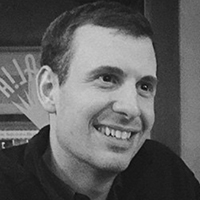 Brian Conlon is an attorney originally from Rochester, NY, now living in San Francisco. He knows of a song that says something or other about meeting someone or other there. He can’t sing it, so don’t ask. If you gave him sheet music, he could play it on sax. His ears are not great. His story The Two Problems in Cambridge, Massachusetts, and Their Solution appeared in the fall 2013 edition of The Writing Disorder. His novella, The Long Black Veil, was recently published by Novella-T (which no longer exists, but was pretty cool).
Brian Conlon is an attorney originally from Rochester, NY, now living in San Francisco. He knows of a song that says something or other about meeting someone or other there. He can’t sing it, so don’t ask. If you gave him sheet music, he could play it on sax. His ears are not great. His story The Two Problems in Cambridge, Massachusetts, and Their Solution appeared in the fall 2013 edition of The Writing Disorder. His novella, The Long Black Veil, was recently published by Novella-T (which no longer exists, but was pretty cool).
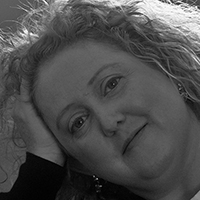 Leah Holbrook Sackett is an adjunct lecturer in the English department at the University of Missouri – St. Louis. This is also where she earned her M.F.A. Additionally, she has published three short stories: A Point of Departure published with Connotation Press, Somebody Else in Kentucky published in Blacktop Passages, and The Birdcage Nests Within published with The Weekly Knob through Medium Daily Digest. Upcoming, her flash fiction entitled What the Looking Glass Reflects will be published in the spring 2017 issue of Zany Zygote Review.
Leah Holbrook Sackett is an adjunct lecturer in the English department at the University of Missouri – St. Louis. This is also where she earned her M.F.A. Additionally, she has published three short stories: A Point of Departure published with Connotation Press, Somebody Else in Kentucky published in Blacktop Passages, and The Birdcage Nests Within published with The Weekly Knob through Medium Daily Digest. Upcoming, her flash fiction entitled What the Looking Glass Reflects will be published in the spring 2017 issue of Zany Zygote Review. 
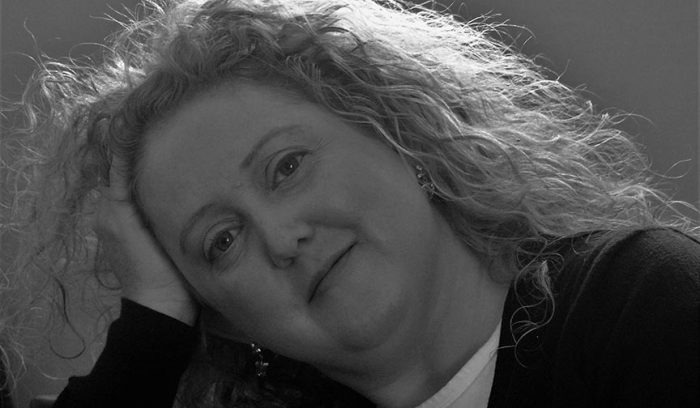
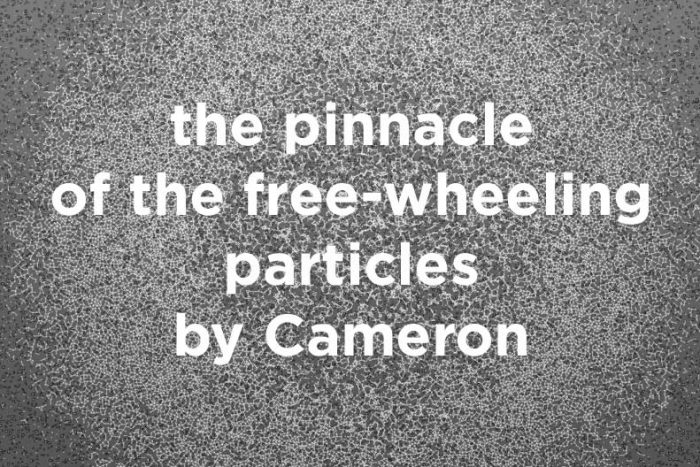
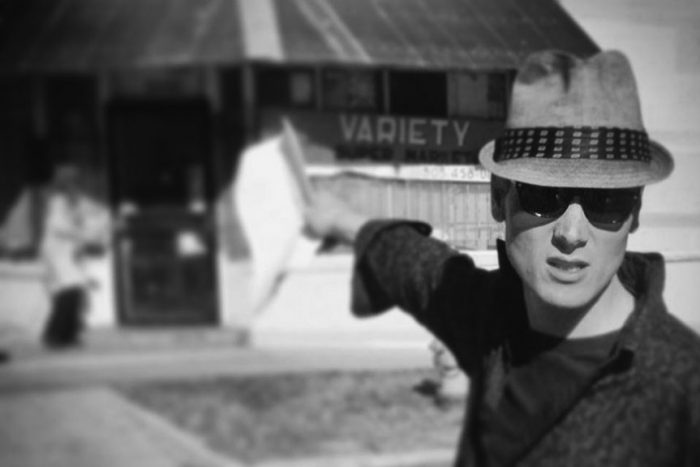
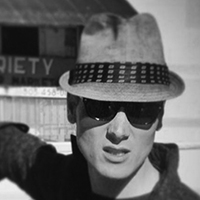 Anthony ILacqua’s third novel Warehouses and Rusted Angels is forthcoming from Ring of Fire Publishing. His former novels, Dysphoric Notions and Undertakers of Rain are both published through Ring of Fire Publishing. He is editor in chief for Umbrella Factory Magazine that he co-founded in 2009. Anthony’s blog:
Anthony ILacqua’s third novel Warehouses and Rusted Angels is forthcoming from Ring of Fire Publishing. His former novels, Dysphoric Notions and Undertakers of Rain are both published through Ring of Fire Publishing. He is editor in chief for Umbrella Factory Magazine that he co-founded in 2009. Anthony’s blog: 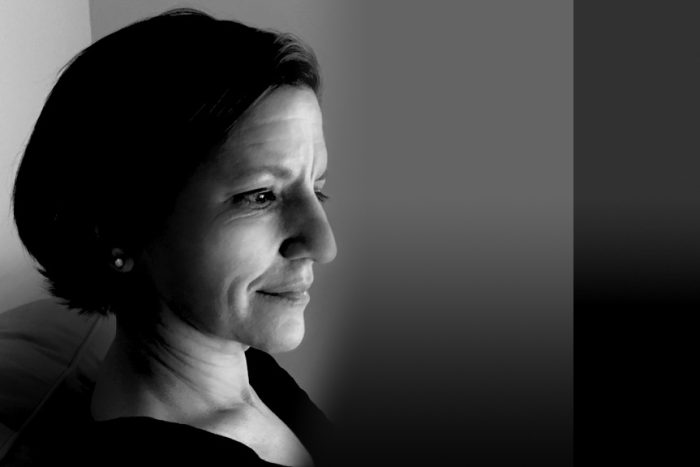
 Beth Goldner is a protocol associate, developing clinical trials in radiation oncology. For fifteen years, she worked as a managing editor in medical publishing.
Beth Goldner is a protocol associate, developing clinical trials in radiation oncology. For fifteen years, she worked as a managing editor in medical publishing.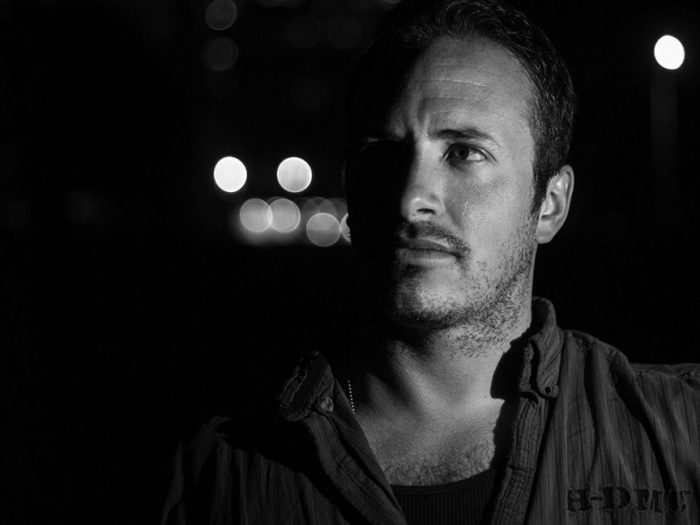
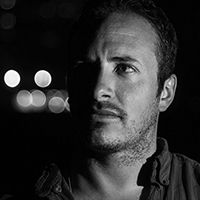 Josh Dull is a U.S. Air Force veteran and a fiction author with an emphasis on place and social issues. He completed his Bachelor’s degree with Honors in the Major from the University of Central Florida and his work appears in The 34th Parallel, The Drunken Odyssey, Funny in Five Hundred, and Central American Literary Review. He has also been featured in a spoken word series called There Will Be Words. When he isn’t at his computer writing and revising, he enjoys traveling to lonely places to hear forgotten voices. He currently resides in Orlando, Florida.
Josh Dull is a U.S. Air Force veteran and a fiction author with an emphasis on place and social issues. He completed his Bachelor’s degree with Honors in the Major from the University of Central Florida and his work appears in The 34th Parallel, The Drunken Odyssey, Funny in Five Hundred, and Central American Literary Review. He has also been featured in a spoken word series called There Will Be Words. When he isn’t at his computer writing and revising, he enjoys traveling to lonely places to hear forgotten voices. He currently resides in Orlando, Florida.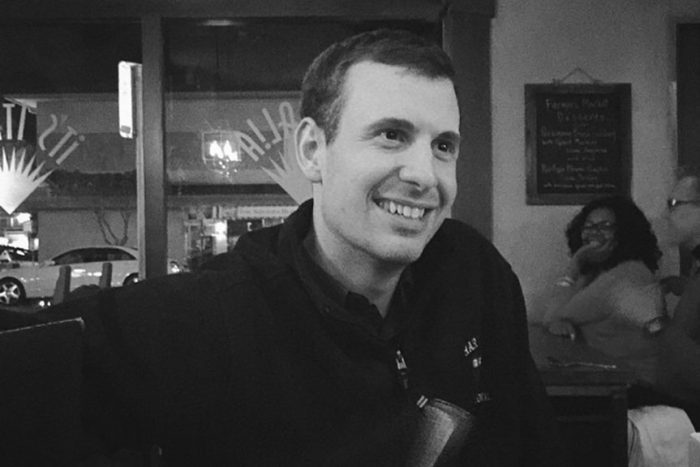
 Brian Conlon is an attorney originally from Rochester, NY, now living in San Francisco. He knows of a song that says something or other about meeting someone or other there. He can’t sing it, so don’t ask. If you gave him sheet music, he could play it on sax. His ears are not great. His story The Two Problems in Cambridge, Massachusetts, and Their Solution appeared in the fall 2013 edition of The Writing Disorder. His novella, The Long Black Veil, was recently published by Novella-T (which no longer exists, but was pretty cool).
Brian Conlon is an attorney originally from Rochester, NY, now living in San Francisco. He knows of a song that says something or other about meeting someone or other there. He can’t sing it, so don’t ask. If you gave him sheet music, he could play it on sax. His ears are not great. His story The Two Problems in Cambridge, Massachusetts, and Their Solution appeared in the fall 2013 edition of The Writing Disorder. His novella, The Long Black Veil, was recently published by Novella-T (which no longer exists, but was pretty cool).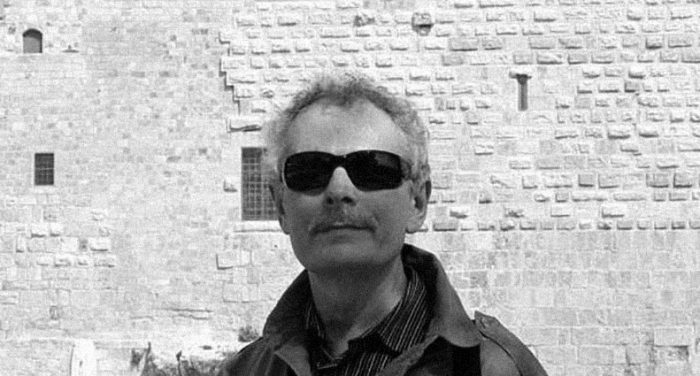
 Mark Budman was born in the former Soviet Union. His writing appeared in Five Points, PEN, American Scholar, Huffington Post, World Literature Today, Daily Science Fiction, Mississippi Review, Virginia Quarterly, The London Magazine (UK), McSweeney’s, Sonora Review, Another Chicago, Sou’wester, Southeast Review, Mid-American Review, Painted Bride Quarterly, Short Fiction (UK), and elsewhere. He is the publisher of the flash fiction magazine Vestal Review. His novel My Life at First Try was published by Counterpoint Press. He co-edited flash fiction anthologies from Ooligan Press and Persea Books/Norton.
Mark Budman was born in the former Soviet Union. His writing appeared in Five Points, PEN, American Scholar, Huffington Post, World Literature Today, Daily Science Fiction, Mississippi Review, Virginia Quarterly, The London Magazine (UK), McSweeney’s, Sonora Review, Another Chicago, Sou’wester, Southeast Review, Mid-American Review, Painted Bride Quarterly, Short Fiction (UK), and elsewhere. He is the publisher of the flash fiction magazine Vestal Review. His novel My Life at First Try was published by Counterpoint Press. He co-edited flash fiction anthologies from Ooligan Press and Persea Books/Norton. Mona Leigh Rose lives and writes in Santa Barbara, California. Her stories “You Be Frodo” and “Peace” have appeared in Luna Review. She is infatuated with short fiction, the shorter the better.
Mona Leigh Rose lives and writes in Santa Barbara, California. Her stories “You Be Frodo” and “Peace” have appeared in Luna Review. She is infatuated with short fiction, the shorter the better.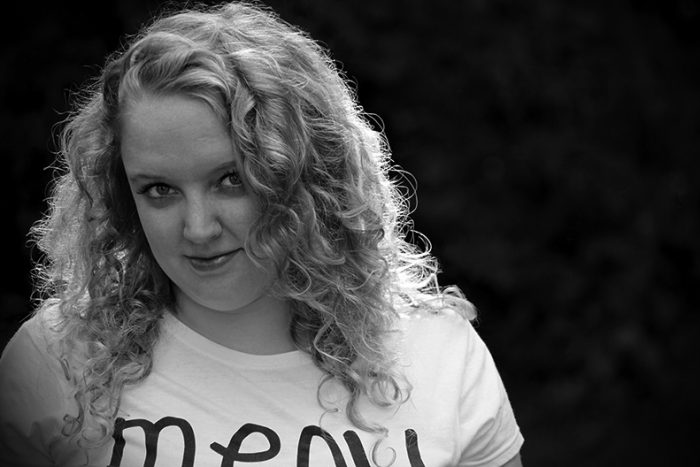
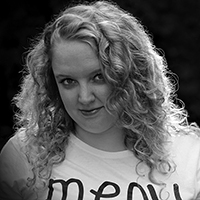 Katie J. Schwartz was raised in a small Midwestern town and now lives in another, frightfully similar, small Midwestern town. She has a Master’s degree in Professional Writing. Her creative works have appeared in Journey Literary Magazine, Adanna Literary Journal, and Black Fox Literary Magazine. Like many writers, she also has a blog: katiejschwartz.wordpress.com. Author photo credit to Bryan Schilligo.
Katie J. Schwartz was raised in a small Midwestern town and now lives in another, frightfully similar, small Midwestern town. She has a Master’s degree in Professional Writing. Her creative works have appeared in Journey Literary Magazine, Adanna Literary Journal, and Black Fox Literary Magazine. Like many writers, she also has a blog: katiejschwartz.wordpress.com. Author photo credit to Bryan Schilligo.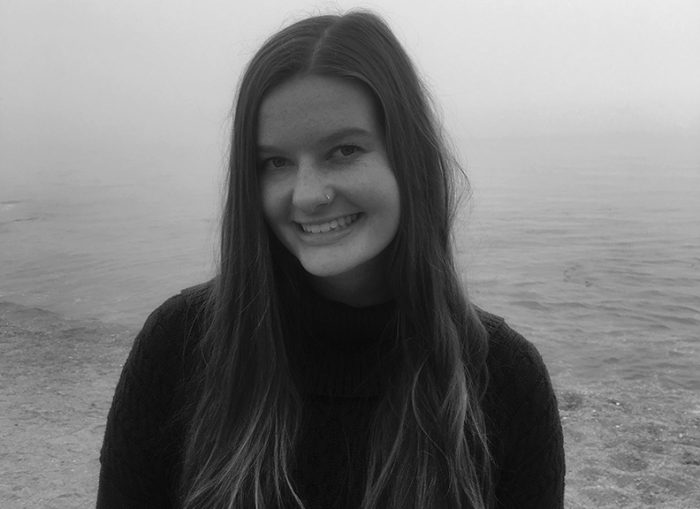
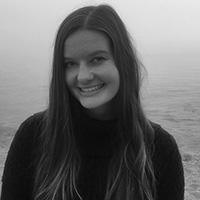 Emma Fuhs spent her childhood on the central coast of California and now attends the University of California, Davis, where she is majoring in English. She aspires to be a novelist and is probably eating a bowl of Cinnamon Toast Crunch right now.
Emma Fuhs spent her childhood on the central coast of California and now attends the University of California, Davis, where she is majoring in English. She aspires to be a novelist and is probably eating a bowl of Cinnamon Toast Crunch right now.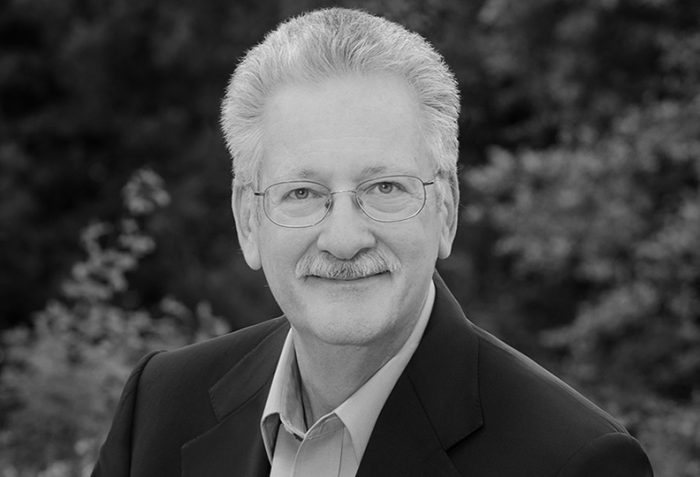
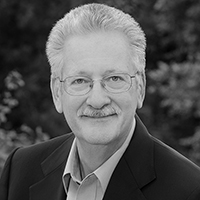 Joe Giordano’s stories have appeared in more than ninety magazines including Bartleby Snopes, The Saturday Evening Post, decomP, The Summerset Review, and Shenandoah. His novel, Birds of Passage, An Italian Immigrant Coming of Age Story, was published by Harvard Square Editions October 2015. His second novel, Appointment with ISIL, an Anthony Provati Thriller will be published by HSE in May 2017. Read the first chapters and sign up for his blog at
Joe Giordano’s stories have appeared in more than ninety magazines including Bartleby Snopes, The Saturday Evening Post, decomP, The Summerset Review, and Shenandoah. His novel, Birds of Passage, An Italian Immigrant Coming of Age Story, was published by Harvard Square Editions October 2015. His second novel, Appointment with ISIL, an Anthony Provati Thriller will be published by HSE in May 2017. Read the first chapters and sign up for his blog at 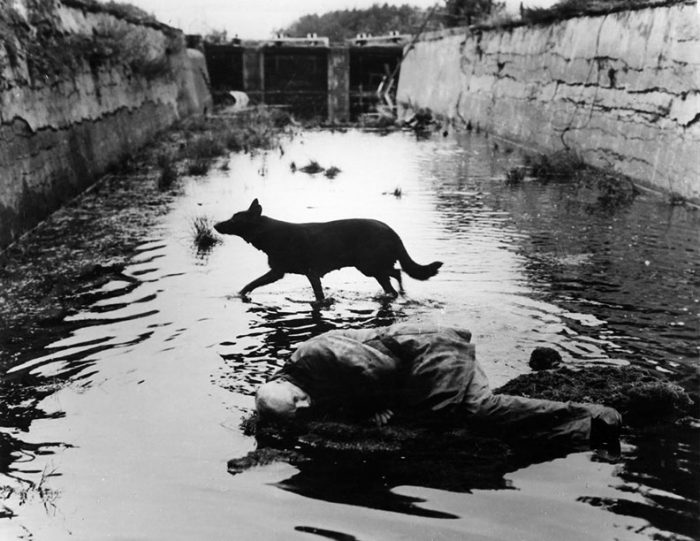
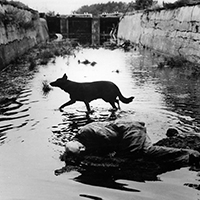 Christopher Branson was shortlisted for the 2016 Impress Prize for New Writers and has recently been published in The Ham. He is close to completing a comic novel about a young man trying to recover from a profound love affair that never happened. Prior to focusing on fiction he wrote a doctoral thesis on Nietzsche. He lives in London, England. @tarkovskysdog
Christopher Branson was shortlisted for the 2016 Impress Prize for New Writers and has recently been published in The Ham. He is close to completing a comic novel about a young man trying to recover from a profound love affair that never happened. Prior to focusing on fiction he wrote a doctoral thesis on Nietzsche. He lives in London, England. @tarkovskysdog
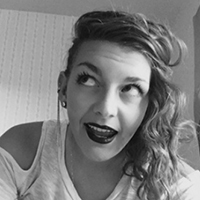 Noelle will graduate in the spring of 2017 with a B.A. in Writing and English from Indiana Wesleyan University. She believes in writing as a catharsis for the grieving and healing. She hopes to work for a publishing house or in the entertainment industry writing for SNL or Jimmy Fallon. Her work can be found in Indiana Wesleyan’s literary magazine Caesura. This is her first piece published in a real literary journal.
Noelle will graduate in the spring of 2017 with a B.A. in Writing and English from Indiana Wesleyan University. She believes in writing as a catharsis for the grieving and healing. She hopes to work for a publishing house or in the entertainment industry writing for SNL or Jimmy Fallon. Her work can be found in Indiana Wesleyan’s literary magazine Caesura. This is her first piece published in a real literary journal.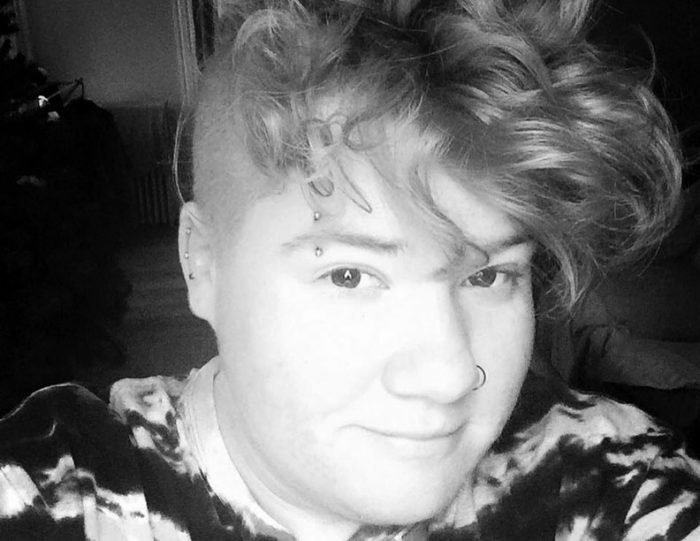
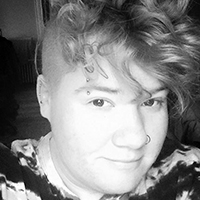 Shalen Lowell is an author, blogger, and poet hailing from Boston, Massachusetts. As a trans author, Shalen specializes in fiction which represents the intersection of fantasy and postmodern genres and queer literature. Shalen currently holds a B.A. in English Literature and Environmental Science, and their work often focuses on the crises of environmental degradation as figured through fantasy media. Their work is also featured in Aether and Ichor.
Shalen Lowell is an author, blogger, and poet hailing from Boston, Massachusetts. As a trans author, Shalen specializes in fiction which represents the intersection of fantasy and postmodern genres and queer literature. Shalen currently holds a B.A. in English Literature and Environmental Science, and their work often focuses on the crises of environmental degradation as figured through fantasy media. Their work is also featured in Aether and Ichor.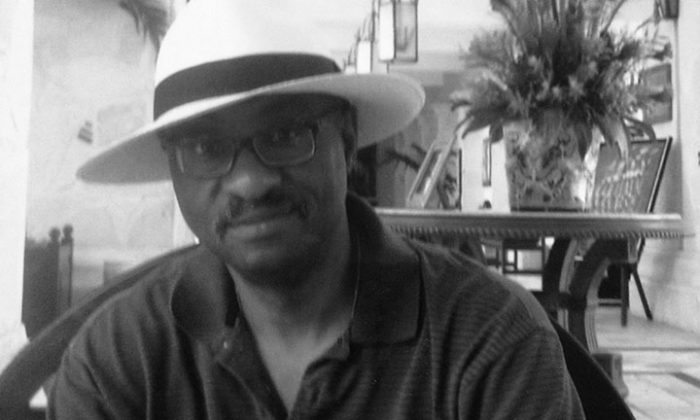
 J L Higgs is a former financial services employee. His short stories focus on the lives of black Americans. “Lee’s Funeral/Emmy’s Wedding” is his second published short story.
J L Higgs is a former financial services employee. His short stories focus on the lives of black Americans. “Lee’s Funeral/Emmy’s Wedding” is his second published short story.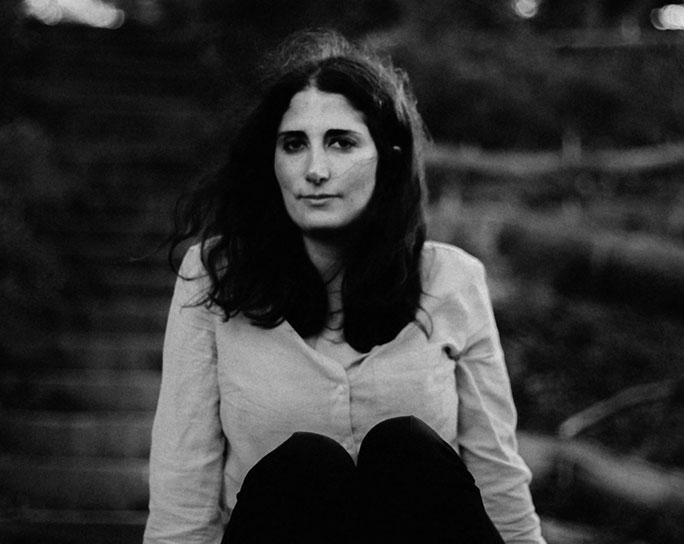
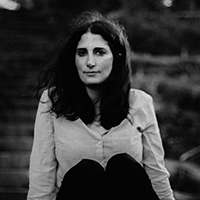 Jacqueline Berkman is a writer based in San Francisco. Her short fiction has been published in The Writing Disorder, Waccamaw, and The East Bay Review, among other places. Her short story “Picking Locks,” which was adapted into the short film “Panofsky’s Complaint,” was screened at the Brooklyn Short Film Festival in June 2016.
Jacqueline Berkman is a writer based in San Francisco. Her short fiction has been published in The Writing Disorder, Waccamaw, and The East Bay Review, among other places. Her short story “Picking Locks,” which was adapted into the short film “Panofsky’s Complaint,” was screened at the Brooklyn Short Film Festival in June 2016.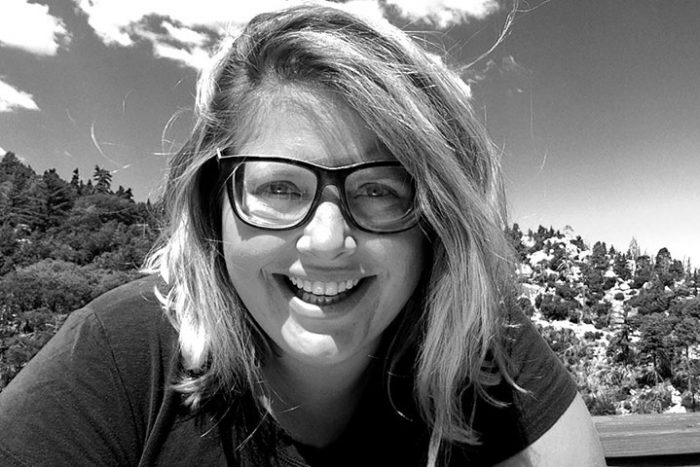
 Jac Smith is from Long Beach, California. She received a B.A. in Psychology from California State University, Long Beach. She was a recipient of the UCLA Extension Writers’ Program Scholarship. Recently she quit her job, left civilization and moved to the small mountain town of Green Valley Lake where she is pursuing writing.
Jac Smith is from Long Beach, California. She received a B.A. in Psychology from California State University, Long Beach. She was a recipient of the UCLA Extension Writers’ Program Scholarship. Recently she quit her job, left civilization and moved to the small mountain town of Green Valley Lake where she is pursuing writing.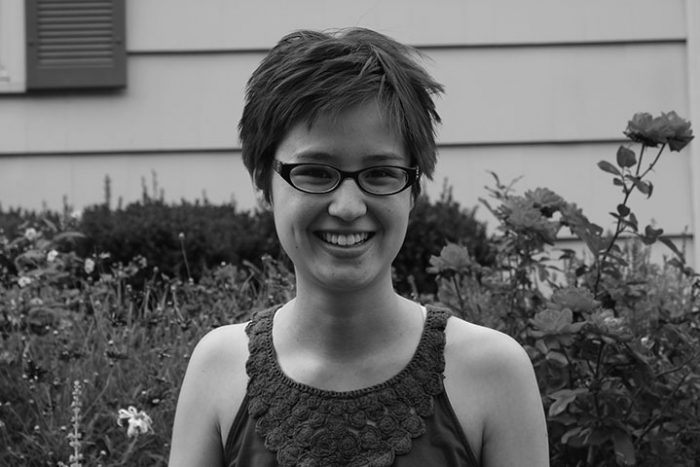
 Tessa Yang is a second-year MFA candidate at Indiana University where she serves as the Associate Editor of Indiana Review. Her fiction has appeared or is forthcoming in Clockhouse, Lunch Ticket, and R.kv.r.y Quarterly. Her short story “Runners” was a finalist for The Cossack Review’s October Prize and will appear in Issue 7. When not reading and writing, Tessa enjoys playing Frisbee and counting down the remaining days until next year’s Shark Week. Follow her on Twitter: @ThePtessadactyl.
Tessa Yang is a second-year MFA candidate at Indiana University where she serves as the Associate Editor of Indiana Review. Her fiction has appeared or is forthcoming in Clockhouse, Lunch Ticket, and R.kv.r.y Quarterly. Her short story “Runners” was a finalist for The Cossack Review’s October Prize and will appear in Issue 7. When not reading and writing, Tessa enjoys playing Frisbee and counting down the remaining days until next year’s Shark Week. Follow her on Twitter: @ThePtessadactyl.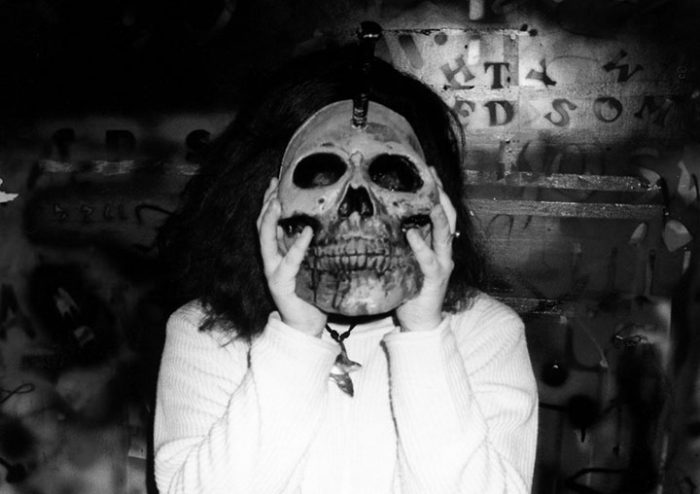
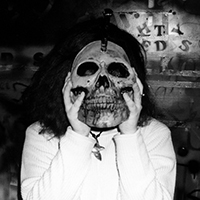 Victoria-Elizabeth Panks is a writer who was brought up along the central coast of California and the northern shores of Lake Michigan, but finds herself living, inexplicably, within the southern suburbs of New Jersey, where she translates French symbolist poetry and writes fanciful speculative fiction. She is currently at work on her second novel.
Victoria-Elizabeth Panks is a writer who was brought up along the central coast of California and the northern shores of Lake Michigan, but finds herself living, inexplicably, within the southern suburbs of New Jersey, where she translates French symbolist poetry and writes fanciful speculative fiction. She is currently at work on her second novel.
 Jennifer Vanderheyden grew up in southern Ohio, and earned a PhD in French Literature from the University of Washington in Seattle. She lives in Wisconsin and teaches French at Marquette University. She has published a critical study on the works of eighteenth century French writer and philosopher Denis Diderot, as well as piece of flash fiction in Robert Vaughan’s Flash Fiction Fridays (Dolls, Vol. 1, 2011)
Jennifer Vanderheyden grew up in southern Ohio, and earned a PhD in French Literature from the University of Washington in Seattle. She lives in Wisconsin and teaches French at Marquette University. She has published a critical study on the works of eighteenth century French writer and philosopher Denis Diderot, as well as piece of flash fiction in Robert Vaughan’s Flash Fiction Fridays (Dolls, Vol. 1, 2011)











